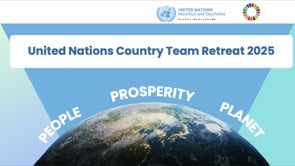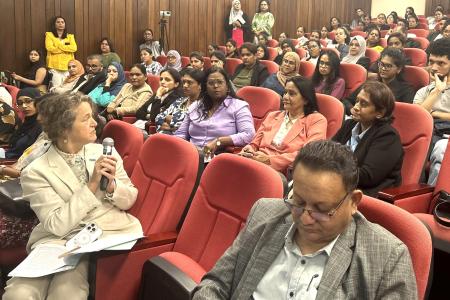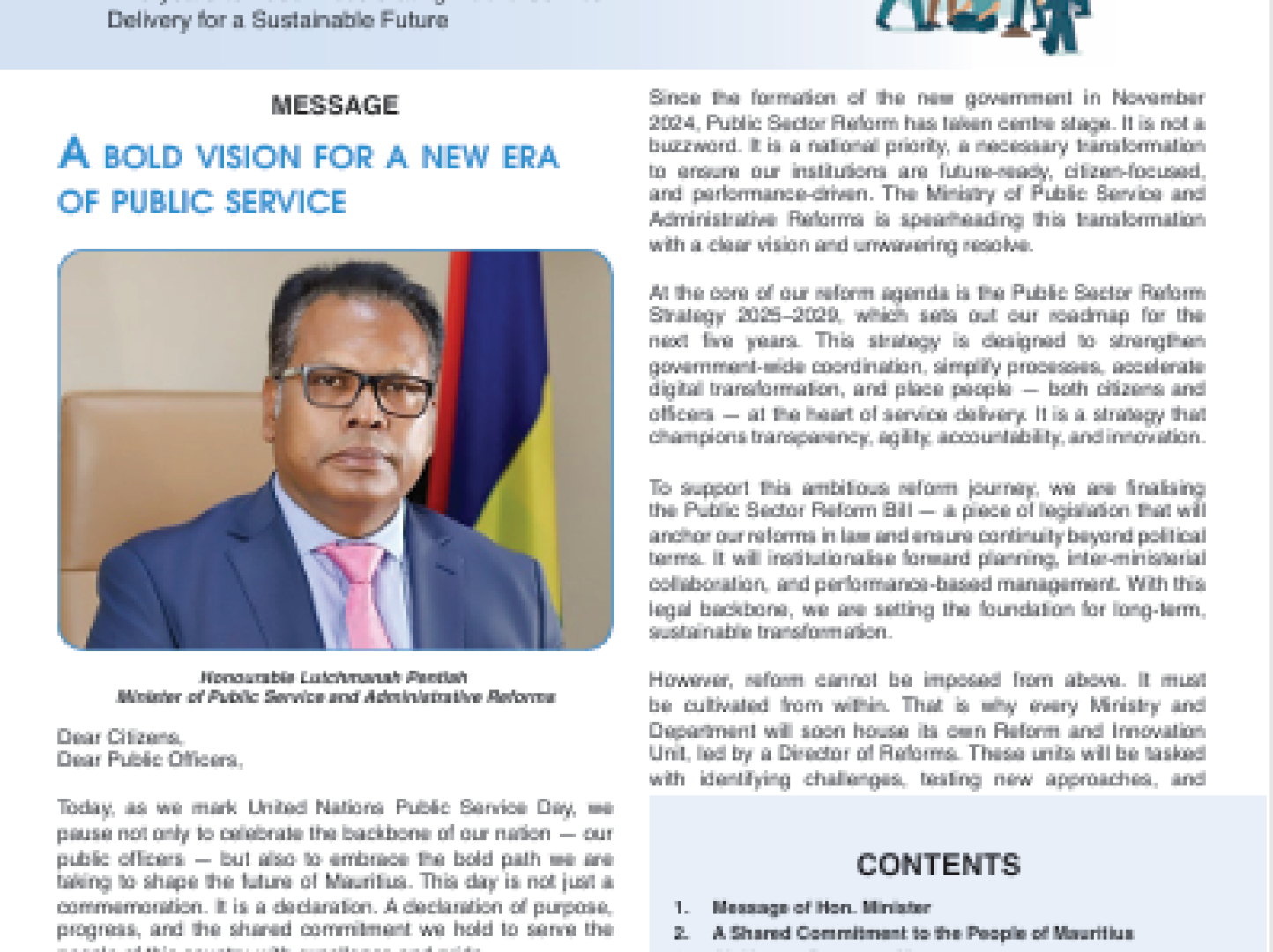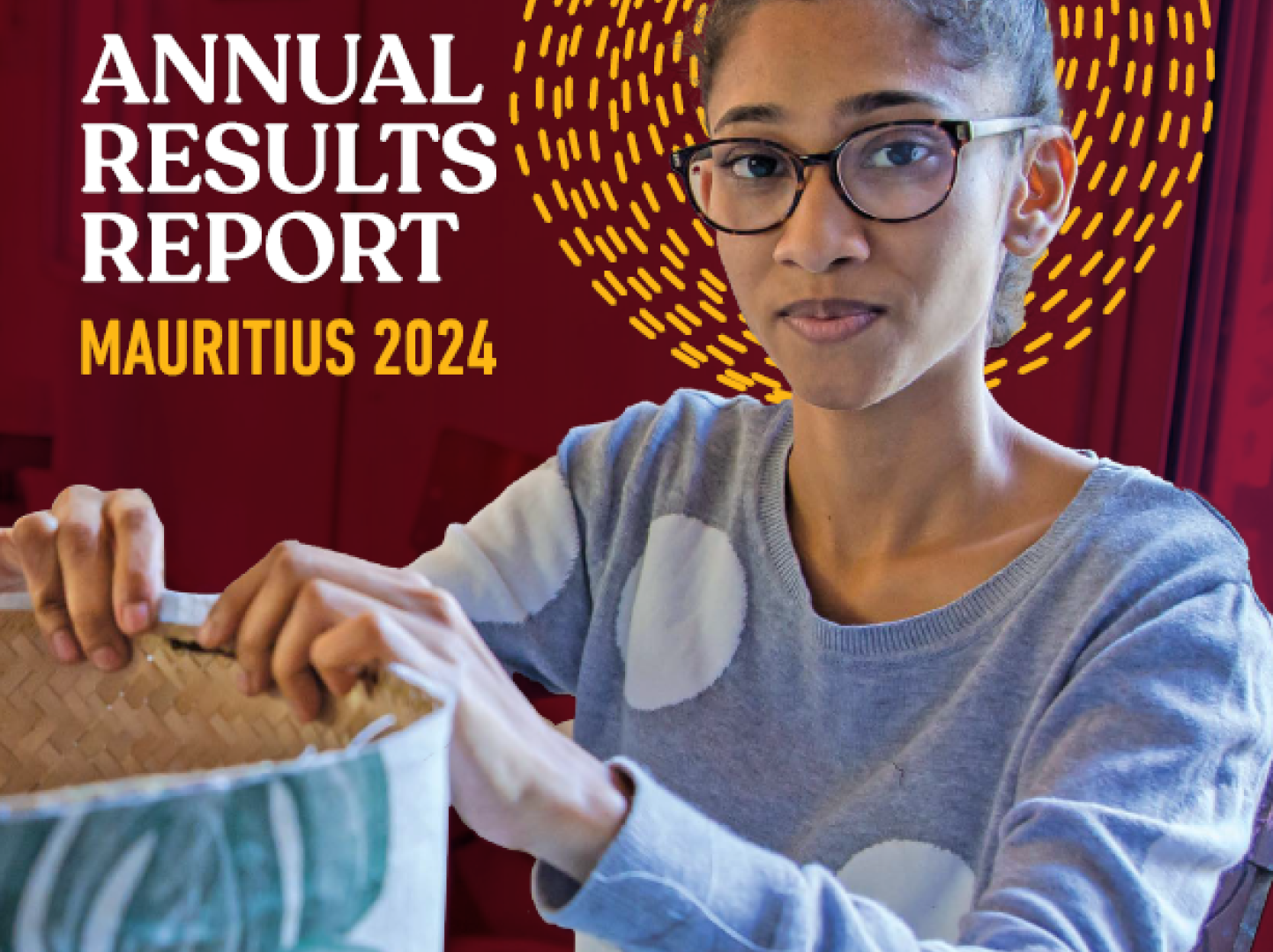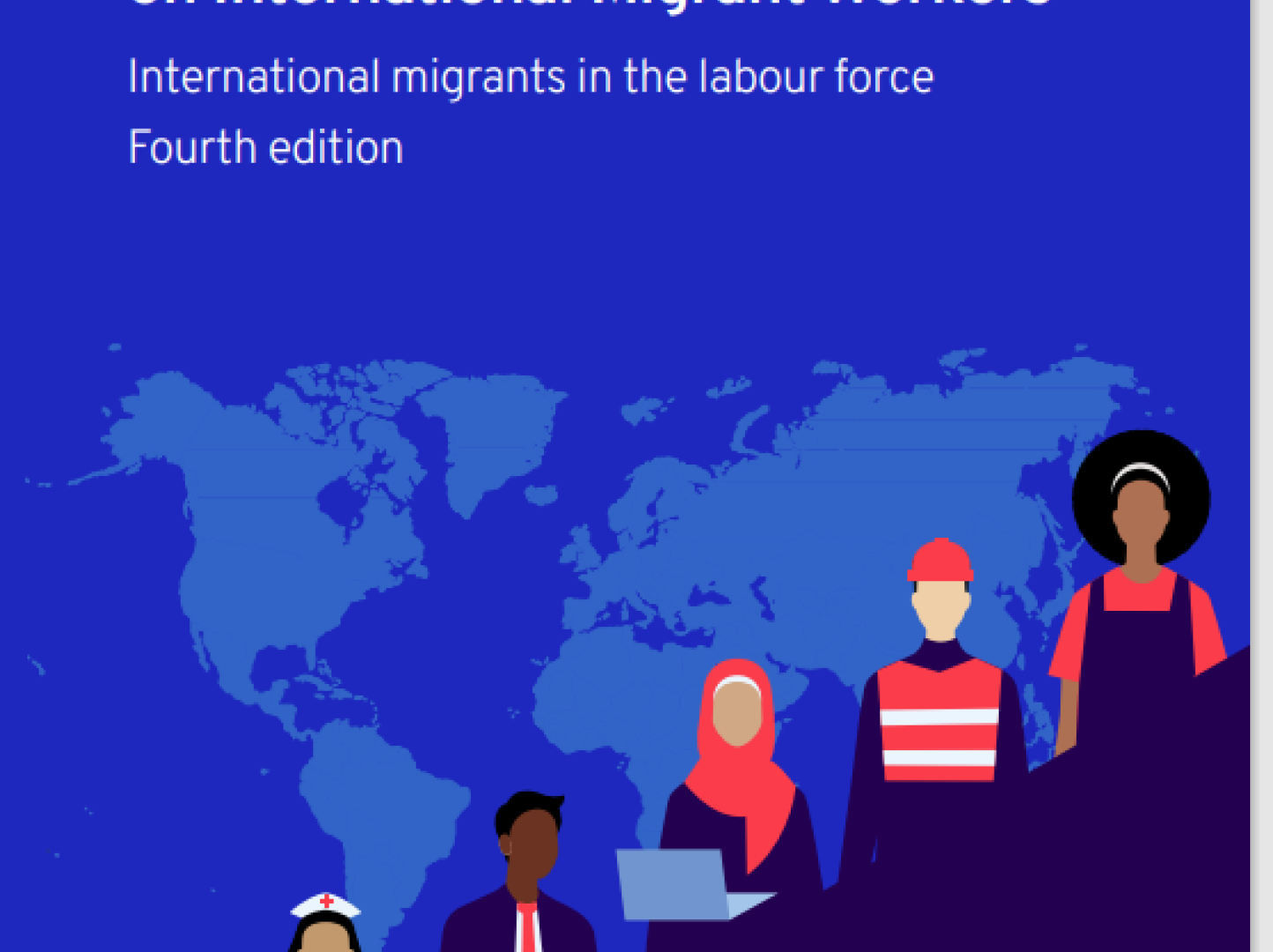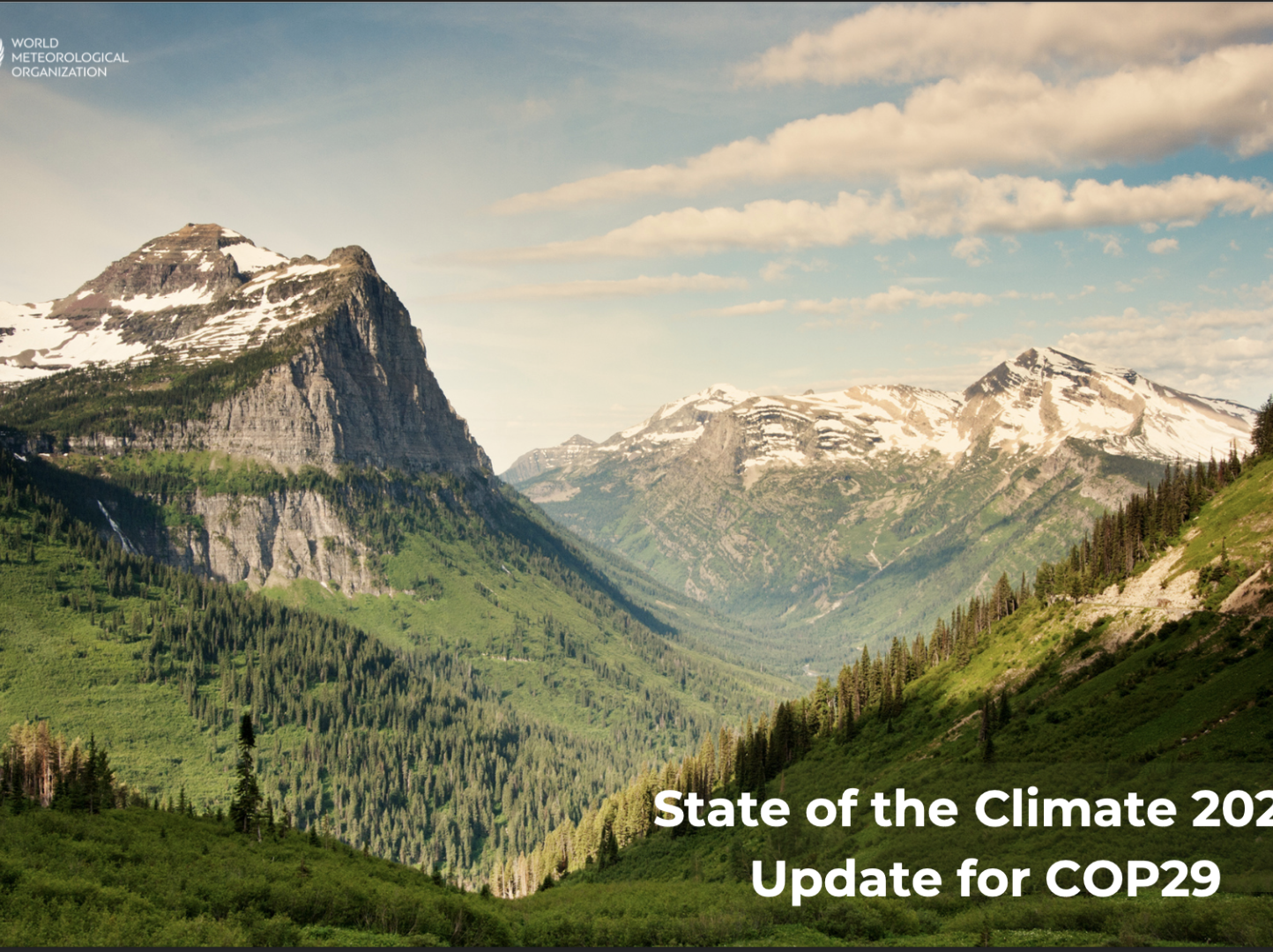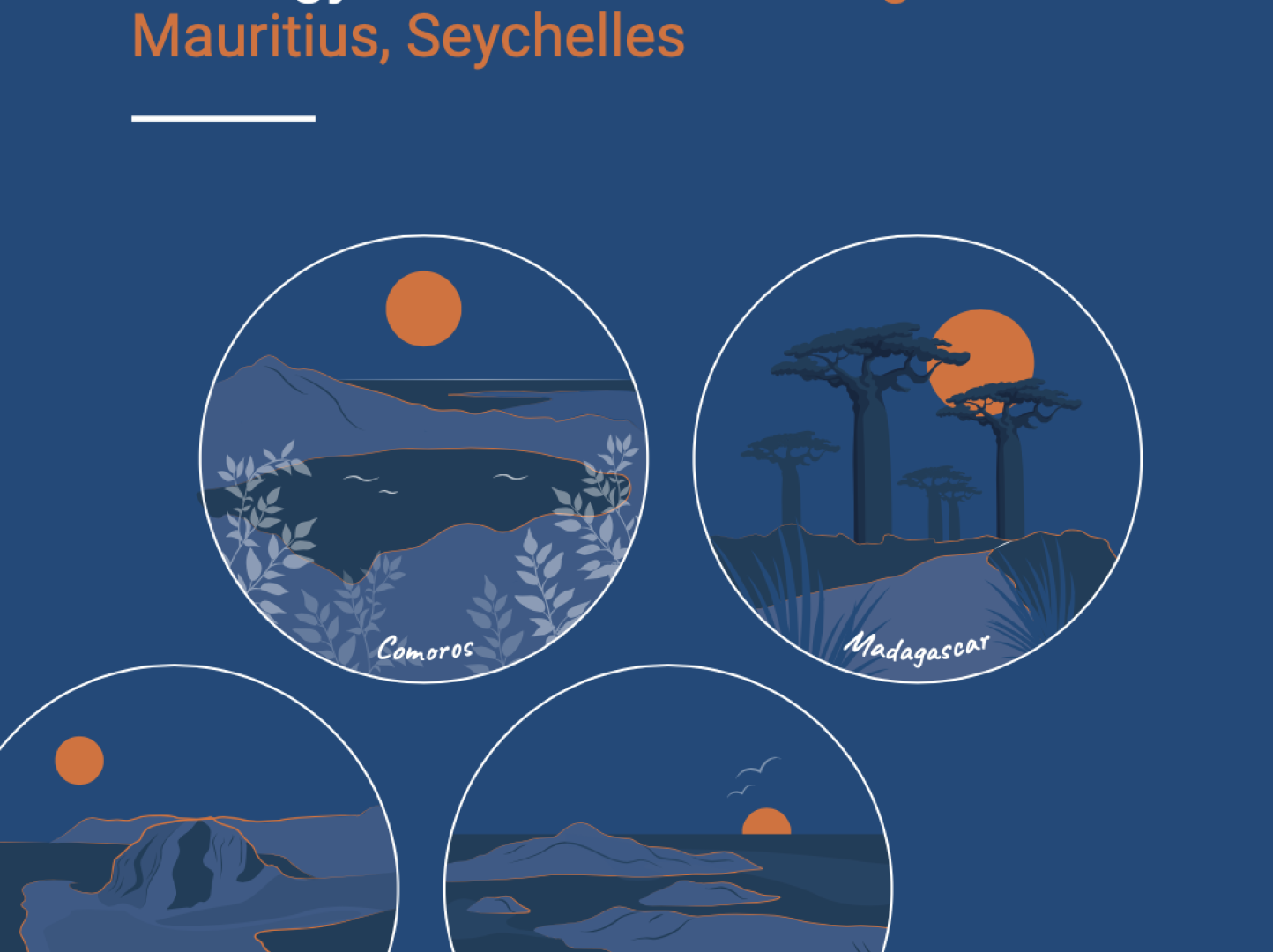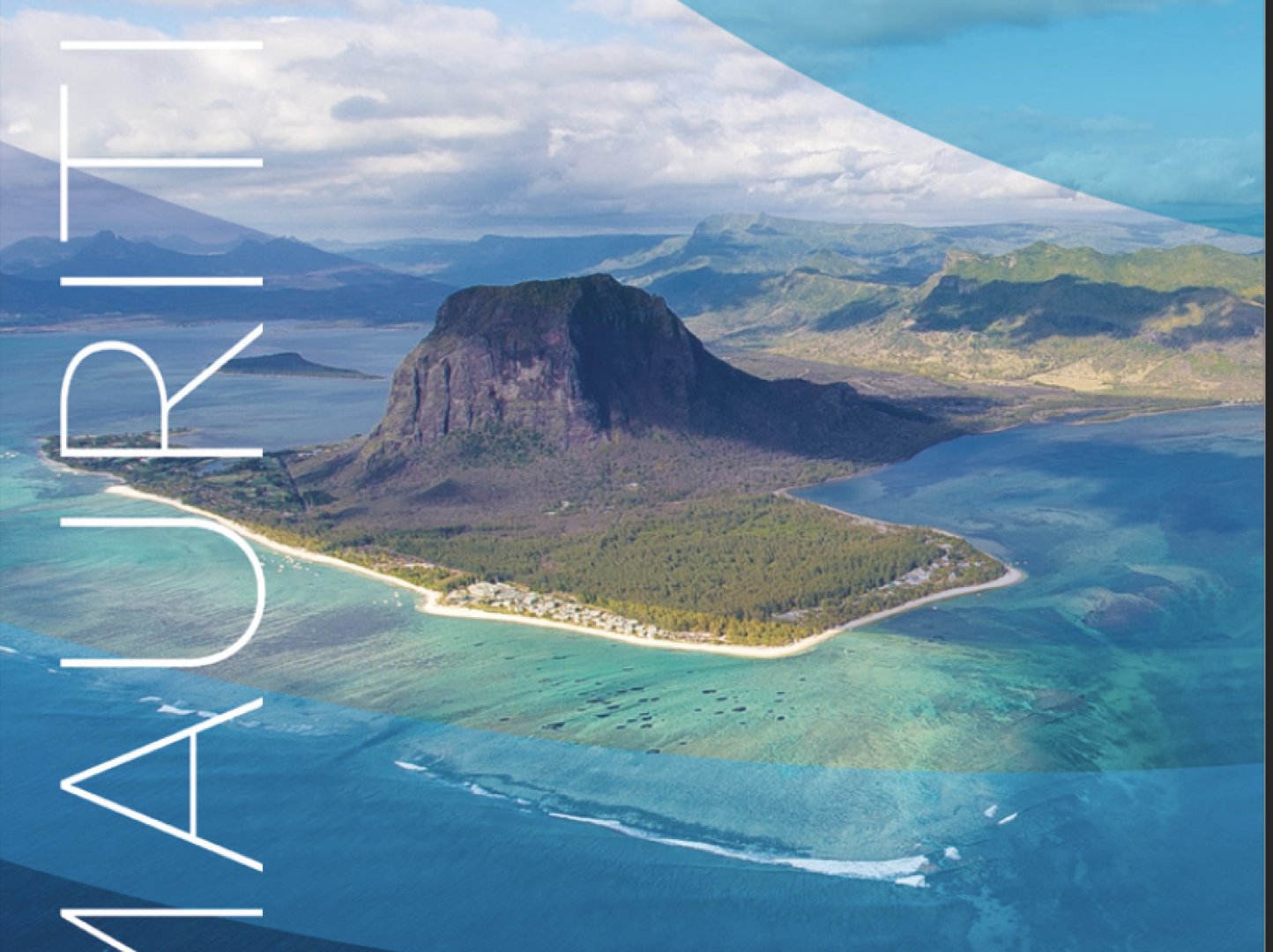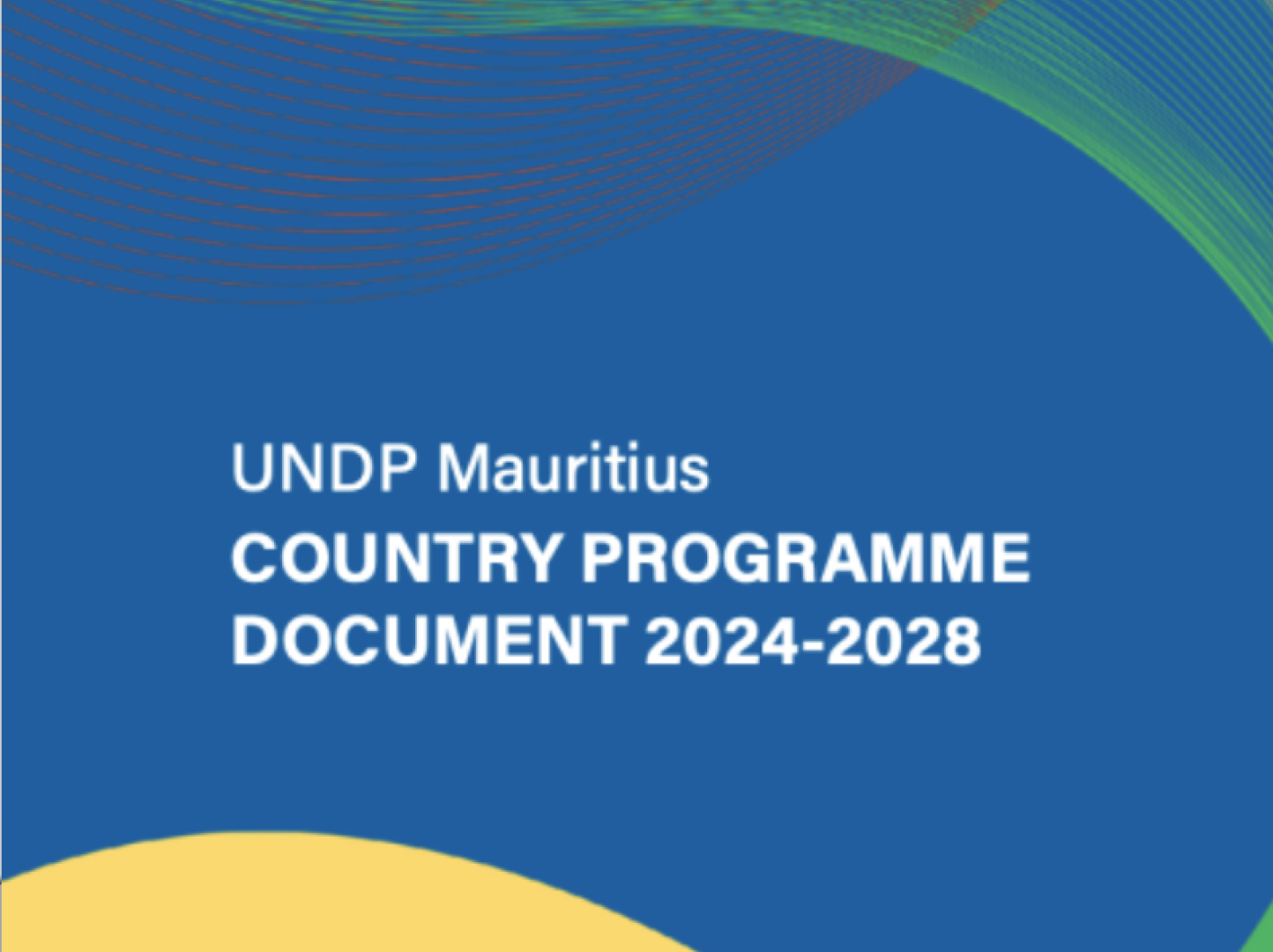Latest
Photo
21 August 2025
Exhibition Winning Photographs Youth in Focus SDG Photo Competition
Learn more
Story
14 August 2025
Prize-Giving Ceremony for Youth in Focus SDG Photo Competition
Learn more
Speech
22 July 2025
Secretary-General's remarks on Climate Action "A Moment of Opportunity: Supercharging the Clean Energy Age"
Learn more
Latest
The Sustainable Development Goals in Mauritius
The Sustainable Development Goals in Mauritius are a global call to action to end poverty, protect the earth’s environment and climate, and ensure that people everywhere can enjoy peace and prosperity. These are the goals the UN is working on in Mauritius:
Speech
22 July 2025
Secretary-General's remarks on Climate Action "A Moment of Opportunity: Supercharging the Clean Energy Age"
July 22, 2025 - The report "Seizing the Moment of Opportunity: Supercharging the New Energy Era of Renewables, Efficiency, and Electrification" provides an overview of the status of the accelerating transition away from fossil fuels to clean energy, underscoring the economic imperative and opportunities inherent in continuing that shift. The following is the address delivered by the UN Secretary-General António Guterres: Excellencies,Ladies and gentlemen,Friends joining us from around the world, The headlines are dominated by a world in trouble. By conflict and climate chaos.By rising human suffering.By growing geo-political divides.But amidst the turmoil, another story is being written.And its implications will be profound.Throughout history, energy has shaped the destiny of humankind – from mastering
fire, to harnessing steam, to splitting the atom.Now, we are on the cusp of a new era. Fossil fuels are running out of road.The sun is rising on a clean energy age.Just follow the money.$2 trillion went into clean energy last year – that’s $800 billion more than fossil fuels, and up almost 70% in ten years.And new data released today from the International Renewable Energy Agency shows that solar – not so long ago four times the cost of fossil fuels – is now 41% cheaper.Offshore wind – 53%.And over 90% of new renewables worldwide produced electricity for less than the cheapest new fossil fuel alternative.This is not just a shift in power. This is a shift in possibility.Yes, in repairing our relationship with the climate.Already, the carbon emissions saved by solar and wind globally are almost equivalent to what the whole European Union produces in a year.But this transformation is fundamentally about energy security and people’s security.It’s about smart economics.Decent jobs, public health, advancing the Sustainable Development Goals. And delivering clean and affordable energy to everyone, everywhere.Today, we are releasing a special report with the support of UN agencies and partners -- the International Energy Agency, the IMF, IRENA, the OECD and the World Bank.The report shows how far we have come in the decade since the Paris Agreement sparked a clean energy revolution. And it highlights the vast benefits – and actions needed – to accelerate a just transition globally.Renewables already nearly match fossil fuels in global installed power capacity.And that’s just the beginning. Last year, almost all the new power capacity built came from renewables. And every continent on Earth added more renewables capacity than fossil fuels.The clean energy future is no longer a promise. It’s a fact. No government. No industry. No special interest can stop it. Of course, the fossil fuel lobby of some fossil fuel companies will try – and we know the lengths to which they will go.But I have never been more confident that they will fail – because we have passed the point of no return. For three powerful reasons. First, market economics.For decades, emissions and economic growth rose together.No more.In many advanced economies, emissions have peaked, but growth continues.In 2023 alone, clean energy sectors drove 10% of global GDP growth.In India, 5%. The United States, 6%. China – a leader in the energy transition – 20%.And in the European Union, nearly 33%.And clean energy sector jobs now outnumber fossil fuel jobs – employing almost 35 million people worldwide.Even Texas – the heart of the American fossil fuel industry – now leads the US in renewables.Why? Because it makes economic sense.And yet fossil fuels still enjoy a 9 to 1 advantage in consumption subsidies globally – a clear market distortion. Add to that the unaccounted costs of climate damages on people and planet – and the distortion is even greater.Countries that cling to fossil fuels are not protecting their economies – they are sabotaging them.Driving up costs.Undermining competitiveness.Locking-in stranded assets.And missing the greatest economic opportunity of the 21st century.Excellencies,
Dear friends,Second -- renewables are here to stay because they are the foundation of energy security and sovereignty.Let’s be clear: The greatest threat to energy security today is in fossil fuels.They leave economies and people at the mercy of price shocks, supply disruptions, and geopolitical turmoil. Just look at Russia’s invasion of Ukraine. A war in Europe led to a global energy crisis.Oil and gas prices soared.Electricity and food bills followed.
In 2022 average households around the world saw energy costs jump 20%. Modern and competitive economies need stable, affordable energy. Renewables offer both.There are no price spikes for sunlight.No embargoes on wind.Renewables can put power – literally and figuratively – in the hands of people and governments.And almost every nation has enough sun, wind, or water to become energy self-sufficient.Renewables mean real energy security. Real energy sovereignty. And real freedom from fossil-fuel volatility.Dear friends,The third and final reason why there is no going back on renewables: Easy access.You can’t build a coal plant in someone’s backyard.But you can deliver solar panels to the most remote village on earth.Solar and wind can be deployed faster, cheaper and more flexibly than fossil fuels ever could.And while nuclear will be part of the global energy mix, it can never fill the access gaps.All of this is a game-changer for the hundreds of millions of people still living without electricity – most of them in Africa, a continent bursting with renewable potential.By 2040, Africa could generate 10 times more electricity than it needs – entirely from renewables. We are already seeing small-scale and off-grid renewable technologies lighting homes, and powering schools and businesses in remote areas.And in places like Pakistan for example, people-power is fueling a solar surge – consumers are driving the clean energy boom. Excellencies,
Dear friends,The energy transition is unstoppable.But the transition is not yet fast enough or fair enough. OECD countries and China account for 80% of renewable power capacity installed worldwide.Brazil and India make up nearly 10%.Africa -- just 1.5%.Meanwhile, the climate crisis is laying waste to lives and livelihoods.Climate disasters in small island states have wiped out over 100% of GDP. In the United States, they are pushing insurance premiums through the roof. And the 1.5 degree limit is in unprecedented peril.To keep it within reach, we must drastically speed up the reduction of emissions – and the reach of the clean energy transition.With manufacturing capacity racing, prices plummeting, and COP30 fast approaching…This is our moment of opportunity.We must seize it.We can do so by taking action in six opportunity areas. First – by using new national climate plans to go all-out on the energy transition. Too often, governments send mixed messages:Bold renewable targets on one day. New fossil fuel subsidies and expansions the next. The next national climate plans, or NDCs, are due in a matter of months.They must bring clarity and certainty.G20 countries must lead. They produce 80% of global emissions. The principle of common but differentiated responsibilities must apply but every country must do more.Ahead of COP30 in Brazil this November, they must submit new plans.I invite leaders to present their new NDCs at an event I will host in September, during General Assembly High-level week. These must:Cover all emissions, across the entire economy.Align with the 1.5 degree limit.Integrate energy, climate and sustainable development priorities into one coherent vision.And deliver on global promises:To double energy efficiency and triple renewables capacity by 2030.And to accelerate the transition away from fossil fuels.These plans must be backed by long-term roadmaps for a just transition to net-zero energy systems – in line with global net-zero by 2050.And they must be underpinned by policies that show that the clean energy future is not just inevitable – but investable. Policies that create clear regulations and a pipeline of projects.That enhance public-private partnerships – unlocking capital and innovation.That put a meaningful price on carbon.And that end subsidies and international public finance for fossil fuels – as promised. Second, this is our moment of opportunity to build the energy systems of the 21st century. The technology is moving ahead. In just fifteen years, the cost of battery storage systems for electricity grids has dropped over 90%. But here’s the problem. Investments in the right infrastructure are not keeping up. For every dollar invested in renewable power, just 60 cents go to grids and storage. That ratio should be one-to-one. We are building renewable power – but not connecting it fast enough.There’s three times more renewable energy waiting to be plugged into grids than was added last year.And fossil fuels still dominate the global total energy mix.We must act now and invest in the backbone of a clean energy future:In modern, flexible and digital grids – including regional integration.In a massive scale-up of energy storage.In charging networks – to power the electric vehicle revolution.On the other hand we need energy efficiency but also electrification -- across buildings, transport and industry.This is how we unlock the full promise of renewables – and build energy systems that are clean, secure and fit for the future.Third, this is our moment of opportunity to meet the world’s surging energy demand sustainably.More people are plugging in.More cities are heating up – with soaring demand for cooling.And more technologies – from AI to digital finance – are devouring electricity.Governments must aim to meet all new electricity demand with renewables.AI can boost efficiency, innovation, and resilience in energy systems. And we must take profit in it.But it is also energy-hungry.A typical AI data-center eats-up as much electricity as 100,000 homes.The largest ones will soon use twenty times that. By 2030, data centres could consume as much electricity as all of Japan does today.This is not sustainable – unless we make it so.And the technology sector must be out front.Today I call on every major tech firm to power all data centres with 100% renewables by 2030.And – along with other industries – they must use water sustainably in cooling systems.The future is being built in the cloud.It must be powered by the sun, the wind, and the promise of a better world. Excellencies
Dear friends,Fourth, this is the moment of opportunity for a just energy transition.The clean energy that we must deliver must also deliver equity, dignity and opportunity for all.That means governments leading a just transition.With support, education and training – for fossil fuel workers, young people, women, Indigenous Peoples and others – so that they can thrive in the new energy economy.With stronger social protection – so no one is left behind. And with international cooperation to help low-income countries that are highly-dependent on fossil fuels and struggling to make the shift.But justice doesn’t stop here.The critical minerals that power the clean energy revolution are often found in countries that have long been exploited.And today, we see history repeating. Communities mistreated.Rights trampled.Environments trashed.Nations stuck at the bottom of value chains – while others reap rewards.And extractive models digging deeper holes of inequality and harm.This must end.Developing countries can play a major role in diversifying sources of supply. The UN Panel on Critical Energy Transition Minerals has shown the way forward – with a path grounded in human rights, justice and equity.Today, I call on governments, businesses and civil society to work with us to deliver its recommendations.Let’s build a future that is not only green – but just.Not only fast – but fair. Not only transformative – but inclusive.Fifth, we have a moment of opportunity to use trade and investment to supercharge the energy transition.Clean energy needs more than ambition.It needs access – to technologies, materials, and manufacturing.But these are concentrated in just a few countries.And global trade is fragmenting.Trade policy must support climate policy.Countries committed to the new energy era must come together to ensure that trade and investment drive it forward.By building diverse, secure, and resilient supply chains.By cutting tariffs on clean energy goods.By unlocking investment and trade – including through South-South cooperation.And by modernizing outdated investment treaties – starting with Investor-State Dispute Settlement provisions.Today, fossil fuel interests are weaponizing these provisions to delay the transition, particularly in several developing countries.Reform is urgent.The race for the new must not be a race for the few.It must be a relay – shared, inclusive and resilient.Let’s make trade a tool for transformation. Sixth and finally, this is our moment of opportunity to unleash the full force of finance – driving investment to markets with massive potential.Despite soaring demand and vast renewables potential -- developing countries are being locked out of the energy transition.Africa is home to 60% of the world’s best solar resources. But it received just 2% of global clean energy investment last year.Zoom out, and the picture is just as stark. In the last decade, only one in every five clean energy dollars went to emerging and developing countries outside China.To keep the 1.5 degree limit alive -- and deliver universal energy access – annual clean energy investment in those countries must rise more than fivefold by 2030. That demands bold national policies. And concrete international action to: Reform the global financial architecture.Drastically increase the lending capacity of multilateral development banks -- making them bigger, bolder, and better able to leverage massive amounts of private finance at reasonable costs;And take effective action on debt relief – and scale up proven tools like debt for climate swaps. Today, developing countries pay outlandish sums for both debt and equity financing – in part because of outdated risk models, bias and broken assumptions that boost the cost of capital.Credit ratings agencies and investors must modernize.
We need a new approach to risk that reflects:The promise of clean energy.The rising cost of climate chaos.And the danger of stranded fossil fuel assets.I urge parties to unite to solve the complex challenges facing some developing countries in the energy transition – such as early retirement of coal plants. Excellencies,
Dear friends,The fossil fuel age is flailing and failing.We are in the dawn of a new energy era.An era where cheap, clean, abundant energy powers a world rich in economic opportunity.Where nations have the security of energy autonomy.And the gift of power is a gift for all.That world is within reach.But it won’t happen on its own.Not fast enough.Not fair enough.It is up to us. We have the tools to power the future for humanity. Let’s make the most of them. This is our moment of opportunity. And I Thank you.
fire, to harnessing steam, to splitting the atom.Now, we are on the cusp of a new era. Fossil fuels are running out of road.The sun is rising on a clean energy age.Just follow the money.$2 trillion went into clean energy last year – that’s $800 billion more than fossil fuels, and up almost 70% in ten years.And new data released today from the International Renewable Energy Agency shows that solar – not so long ago four times the cost of fossil fuels – is now 41% cheaper.Offshore wind – 53%.And over 90% of new renewables worldwide produced electricity for less than the cheapest new fossil fuel alternative.This is not just a shift in power. This is a shift in possibility.Yes, in repairing our relationship with the climate.Already, the carbon emissions saved by solar and wind globally are almost equivalent to what the whole European Union produces in a year.But this transformation is fundamentally about energy security and people’s security.It’s about smart economics.Decent jobs, public health, advancing the Sustainable Development Goals. And delivering clean and affordable energy to everyone, everywhere.Today, we are releasing a special report with the support of UN agencies and partners -- the International Energy Agency, the IMF, IRENA, the OECD and the World Bank.The report shows how far we have come in the decade since the Paris Agreement sparked a clean energy revolution. And it highlights the vast benefits – and actions needed – to accelerate a just transition globally.Renewables already nearly match fossil fuels in global installed power capacity.And that’s just the beginning. Last year, almost all the new power capacity built came from renewables. And every continent on Earth added more renewables capacity than fossil fuels.The clean energy future is no longer a promise. It’s a fact. No government. No industry. No special interest can stop it. Of course, the fossil fuel lobby of some fossil fuel companies will try – and we know the lengths to which they will go.But I have never been more confident that they will fail – because we have passed the point of no return. For three powerful reasons. First, market economics.For decades, emissions and economic growth rose together.No more.In many advanced economies, emissions have peaked, but growth continues.In 2023 alone, clean energy sectors drove 10% of global GDP growth.In India, 5%. The United States, 6%. China – a leader in the energy transition – 20%.And in the European Union, nearly 33%.And clean energy sector jobs now outnumber fossil fuel jobs – employing almost 35 million people worldwide.Even Texas – the heart of the American fossil fuel industry – now leads the US in renewables.Why? Because it makes economic sense.And yet fossil fuels still enjoy a 9 to 1 advantage in consumption subsidies globally – a clear market distortion. Add to that the unaccounted costs of climate damages on people and planet – and the distortion is even greater.Countries that cling to fossil fuels are not protecting their economies – they are sabotaging them.Driving up costs.Undermining competitiveness.Locking-in stranded assets.And missing the greatest economic opportunity of the 21st century.Excellencies,
Dear friends,Second -- renewables are here to stay because they are the foundation of energy security and sovereignty.Let’s be clear: The greatest threat to energy security today is in fossil fuels.They leave economies and people at the mercy of price shocks, supply disruptions, and geopolitical turmoil. Just look at Russia’s invasion of Ukraine. A war in Europe led to a global energy crisis.Oil and gas prices soared.Electricity and food bills followed.
In 2022 average households around the world saw energy costs jump 20%. Modern and competitive economies need stable, affordable energy. Renewables offer both.There are no price spikes for sunlight.No embargoes on wind.Renewables can put power – literally and figuratively – in the hands of people and governments.And almost every nation has enough sun, wind, or water to become energy self-sufficient.Renewables mean real energy security. Real energy sovereignty. And real freedom from fossil-fuel volatility.Dear friends,The third and final reason why there is no going back on renewables: Easy access.You can’t build a coal plant in someone’s backyard.But you can deliver solar panels to the most remote village on earth.Solar and wind can be deployed faster, cheaper and more flexibly than fossil fuels ever could.And while nuclear will be part of the global energy mix, it can never fill the access gaps.All of this is a game-changer for the hundreds of millions of people still living without electricity – most of them in Africa, a continent bursting with renewable potential.By 2040, Africa could generate 10 times more electricity than it needs – entirely from renewables. We are already seeing small-scale and off-grid renewable technologies lighting homes, and powering schools and businesses in remote areas.And in places like Pakistan for example, people-power is fueling a solar surge – consumers are driving the clean energy boom. Excellencies,
Dear friends,The energy transition is unstoppable.But the transition is not yet fast enough or fair enough. OECD countries and China account for 80% of renewable power capacity installed worldwide.Brazil and India make up nearly 10%.Africa -- just 1.5%.Meanwhile, the climate crisis is laying waste to lives and livelihoods.Climate disasters in small island states have wiped out over 100% of GDP. In the United States, they are pushing insurance premiums through the roof. And the 1.5 degree limit is in unprecedented peril.To keep it within reach, we must drastically speed up the reduction of emissions – and the reach of the clean energy transition.With manufacturing capacity racing, prices plummeting, and COP30 fast approaching…This is our moment of opportunity.We must seize it.We can do so by taking action in six opportunity areas. First – by using new national climate plans to go all-out on the energy transition. Too often, governments send mixed messages:Bold renewable targets on one day. New fossil fuel subsidies and expansions the next. The next national climate plans, or NDCs, are due in a matter of months.They must bring clarity and certainty.G20 countries must lead. They produce 80% of global emissions. The principle of common but differentiated responsibilities must apply but every country must do more.Ahead of COP30 in Brazil this November, they must submit new plans.I invite leaders to present their new NDCs at an event I will host in September, during General Assembly High-level week. These must:Cover all emissions, across the entire economy.Align with the 1.5 degree limit.Integrate energy, climate and sustainable development priorities into one coherent vision.And deliver on global promises:To double energy efficiency and triple renewables capacity by 2030.And to accelerate the transition away from fossil fuels.These plans must be backed by long-term roadmaps for a just transition to net-zero energy systems – in line with global net-zero by 2050.And they must be underpinned by policies that show that the clean energy future is not just inevitable – but investable. Policies that create clear regulations and a pipeline of projects.That enhance public-private partnerships – unlocking capital and innovation.That put a meaningful price on carbon.And that end subsidies and international public finance for fossil fuels – as promised. Second, this is our moment of opportunity to build the energy systems of the 21st century. The technology is moving ahead. In just fifteen years, the cost of battery storage systems for electricity grids has dropped over 90%. But here’s the problem. Investments in the right infrastructure are not keeping up. For every dollar invested in renewable power, just 60 cents go to grids and storage. That ratio should be one-to-one. We are building renewable power – but not connecting it fast enough.There’s three times more renewable energy waiting to be plugged into grids than was added last year.And fossil fuels still dominate the global total energy mix.We must act now and invest in the backbone of a clean energy future:In modern, flexible and digital grids – including regional integration.In a massive scale-up of energy storage.In charging networks – to power the electric vehicle revolution.On the other hand we need energy efficiency but also electrification -- across buildings, transport and industry.This is how we unlock the full promise of renewables – and build energy systems that are clean, secure and fit for the future.Third, this is our moment of opportunity to meet the world’s surging energy demand sustainably.More people are plugging in.More cities are heating up – with soaring demand for cooling.And more technologies – from AI to digital finance – are devouring electricity.Governments must aim to meet all new electricity demand with renewables.AI can boost efficiency, innovation, and resilience in energy systems. And we must take profit in it.But it is also energy-hungry.A typical AI data-center eats-up as much electricity as 100,000 homes.The largest ones will soon use twenty times that. By 2030, data centres could consume as much electricity as all of Japan does today.This is not sustainable – unless we make it so.And the technology sector must be out front.Today I call on every major tech firm to power all data centres with 100% renewables by 2030.And – along with other industries – they must use water sustainably in cooling systems.The future is being built in the cloud.It must be powered by the sun, the wind, and the promise of a better world. Excellencies
Dear friends,Fourth, this is the moment of opportunity for a just energy transition.The clean energy that we must deliver must also deliver equity, dignity and opportunity for all.That means governments leading a just transition.With support, education and training – for fossil fuel workers, young people, women, Indigenous Peoples and others – so that they can thrive in the new energy economy.With stronger social protection – so no one is left behind. And with international cooperation to help low-income countries that are highly-dependent on fossil fuels and struggling to make the shift.But justice doesn’t stop here.The critical minerals that power the clean energy revolution are often found in countries that have long been exploited.And today, we see history repeating. Communities mistreated.Rights trampled.Environments trashed.Nations stuck at the bottom of value chains – while others reap rewards.And extractive models digging deeper holes of inequality and harm.This must end.Developing countries can play a major role in diversifying sources of supply. The UN Panel on Critical Energy Transition Minerals has shown the way forward – with a path grounded in human rights, justice and equity.Today, I call on governments, businesses and civil society to work with us to deliver its recommendations.Let’s build a future that is not only green – but just.Not only fast – but fair. Not only transformative – but inclusive.Fifth, we have a moment of opportunity to use trade and investment to supercharge the energy transition.Clean energy needs more than ambition.It needs access – to technologies, materials, and manufacturing.But these are concentrated in just a few countries.And global trade is fragmenting.Trade policy must support climate policy.Countries committed to the new energy era must come together to ensure that trade and investment drive it forward.By building diverse, secure, and resilient supply chains.By cutting tariffs on clean energy goods.By unlocking investment and trade – including through South-South cooperation.And by modernizing outdated investment treaties – starting with Investor-State Dispute Settlement provisions.Today, fossil fuel interests are weaponizing these provisions to delay the transition, particularly in several developing countries.Reform is urgent.The race for the new must not be a race for the few.It must be a relay – shared, inclusive and resilient.Let’s make trade a tool for transformation. Sixth and finally, this is our moment of opportunity to unleash the full force of finance – driving investment to markets with massive potential.Despite soaring demand and vast renewables potential -- developing countries are being locked out of the energy transition.Africa is home to 60% of the world’s best solar resources. But it received just 2% of global clean energy investment last year.Zoom out, and the picture is just as stark. In the last decade, only one in every five clean energy dollars went to emerging and developing countries outside China.To keep the 1.5 degree limit alive -- and deliver universal energy access – annual clean energy investment in those countries must rise more than fivefold by 2030. That demands bold national policies. And concrete international action to: Reform the global financial architecture.Drastically increase the lending capacity of multilateral development banks -- making them bigger, bolder, and better able to leverage massive amounts of private finance at reasonable costs;And take effective action on debt relief – and scale up proven tools like debt for climate swaps. Today, developing countries pay outlandish sums for both debt and equity financing – in part because of outdated risk models, bias and broken assumptions that boost the cost of capital.Credit ratings agencies and investors must modernize.
We need a new approach to risk that reflects:The promise of clean energy.The rising cost of climate chaos.And the danger of stranded fossil fuel assets.I urge parties to unite to solve the complex challenges facing some developing countries in the energy transition – such as early retirement of coal plants. Excellencies,
Dear friends,The fossil fuel age is flailing and failing.We are in the dawn of a new energy era.An era where cheap, clean, abundant energy powers a world rich in economic opportunity.Where nations have the security of energy autonomy.And the gift of power is a gift for all.That world is within reach.But it won’t happen on its own.Not fast enough.Not fair enough.It is up to us. We have the tools to power the future for humanity. Let’s make the most of them. This is our moment of opportunity. And I Thank you.
1 of 5
Photo
21 August 2025
Exhibition Winning Photographs Youth in Focus SDG Photo Competition
The UN is delighted to exhibit the winners of the “Youth in Focus” SDG Photography Competition, a celebration of creativity, vision, and youth empowerment.
1 of 5
https://www.flickr.com/photos/196055354@N08/albums/72177720328532072
Publication
07 April 2025
2024 UN Country Annual Results Report Mauritius
It is my pleasure to present the Annual Results Report of the United Nations Country Team (UNCT) in Mauritius for 2024. The report highlights the key results and achievements of the 24 United Nations agencies, funds and programmes, acting in collaboration with national stakeholders to address national development priorities and achieve progress on the Sustainable Development Goals (SDGs) for an inclusive, resilient and prosperous future for all Mauritians. 2024 was significant in many ways: it was the inaugural implementation year of the United Nations Sustainable Development Cooperation Framework (UNSDCF) 2024–2028. It also marked the new decade of action for Small Island Developing States (SIDS), which are at the forefront of the global climate emergency. The fourth International Conference on SIDS launched the Antigua and Barbuda Agenda for SIDS (ABAS), which defines the priorities of SIDS for the next 10 years to include climate resilience, economic diversification, human capital and the acceleration of digitalization, science, technology and innovation and the global frameworks, partnerships, monitoring and financing required. Similarly, the Pact for the Future, adopted at the Summit of the Future in September 2024, underscored the importance of multilateral action in addressing global challenges with attention to the increased vulnerability of SIDS countries. These frameworks provide programmatic and operational guidance to the United Nations and development partners towards concrete broad-based actions that improve sustainable institutional effectiveness, systems thinking, policy innovation and partnerships for results. Specifically, the contributions of the United Nations in 2024 have been clustered around three pillars: People, Planet and Prosperity. Under the People Pillar, the emphasis was on strengthening policies and institutional capacities to include the development of three national health policies. These measures reinforced the delivery of integrated, high-quality and accessible health services addressing sexual and reproductive health, as well as communicable and non-communicable diseases. The Prosperity Pillar puts focus on the entrepreneurial ecosystem, private sector engagement, enhancing food security, promoting decent work and advancing a resilient blue, green, circular and digital economy. These efforts created economic opportunities for young people, women, persons with disabilities and other vulnerable groups. Over 100 small to medium-sized enterprises (SMEs) were empowered to capitalize on the African Continental Free Trade Area (AfCFTA), driving economic growth. The Planet Pillar focused on helping Mauritius to transition towards gender-sensitive renewable energy and circular economy pathways, tackle plastic pollution and strengthen resilience to natural disasters and climate change. Maritime security remained a high priority, with United Nations support for strengthened cooperation on maritime law enforcement within the framework of the United Nations Convention on the Law of the Sea. Looking ahead to 2025, the priority for the UNCT will be to accompany the implementation of the Government’s new Programme (2025–2029) via the UNSDCF. We are pleased to note the strong alignment between the two strategic documents with emphasis on consolidating development gains, managing and mitigating risks, investing in human capital and fostering innovation and shared prosperity for all. Multilaterism remains a core pathway to supporting the acceleration of the regional integration agenda as envisaged in AfCFTA, international agreements such as the Pact for the Future and the ABAS. Partnerships and collective national and regional actions in addressing complex challenges with the public and private sectors, civil society, academia, development partners and regional entities will ensure that we capitalize on our strengths, resources and expertise and together provide a strong foundation for a sustainable, inclusive and prosperous Mauritius where no one is left behind. Ms. Lisa Simrique SinghUN Resident Coordinatorfor Mauritius & Seychelles
1 of 5
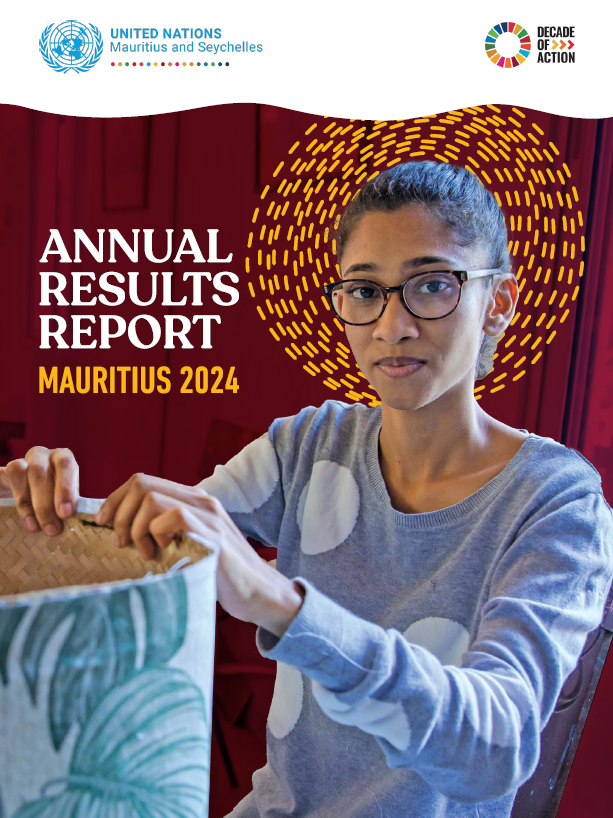
Story
10 December 2024
Breaking the Silence: Addressing Gender-Based Violence and Upholding Human Rights
The theme for this year Our Rights, Our Future, Right Now emphasizes how human rights are a transformative force for good. Human Rights Day also marks the last day of the 16 Days of Activism Against Gender Based Violence. Because we live in a world where one of the most pervasive abuses of human rights is perpetuated every day – violence against women and girls. The figures are astounding. Globally an estimated 736 million women—almost one in three—have been subjected to physical and/or sexual intimate partner violence, non-partner sexual violence, or both at least once.[1] While 1 in 4 adolescent girls have suffered from intimate partner violence. The women in Mauritius fare no better with the latest available showing that around 24% of women had experienced some form of gender-based violence (GBV). Of course, the reality of the situation may be worse than the numbers are showing as cases of violence and abuse within the confines of a home, cases against vulnerable people such as people with disability often go unreported.[2] This comes at a significant cost not just to the women concerned but to their families, their communities and to the country.In recent years, Mauritius has made significant strides in addressing GBV and promoting human rights. UN Member States participated in a High-Level event to mark Human Rights 75, last year where Mauritius made a commitment to uphold human rights including to actively pursue efforts to combat GBV. Several laws aimed at protecting women from violence have been enacted, including the Protection from Domestic Violence Act (1997) to provide for protection of spouses against domestic violence and in 2016 to include severe penalties to perpetrators of domestic violence. Additionally, a High-Level Committee on the Elimination of Gender Based Violence meets under the Chairmanship of the Prime Minister to drive and monitor implementation of the National Strategic Action Plan on GBV. And the “Lespwar” app developed with the support of the UN is downloadable and accessible for any age.However, the journey is far from over. As we observe Human Rights Day, it's crucial to reflect on the progress made and the work that lies ahead. These legal measures are vital, but they must be accompanied by robust implementation and support systems. A high-level panel discussion held by the UN in Mauritius in collaboration with several of our diplomatic partners highlighted that although laws exist against GBV on the ground implementation of these laws from the frontliners to the law courts does not always provide the necessary support to the victim. Sharing a youth’s perspective our RCO intern reflected: “Technology races forward, the internet has become the centerpoint of our lives, yet human prejudice remains stubbornly anchored in the dark ages. We can program computers to think, but we can't reprogram the beliefs that chain women to their abusers.”Tackling this unacceptable breach of human rights from different angles, the UN in Mauritius is committed to supporting initiatives to:Raise Awareness & change attitudes: Education plays a critical role in this regard, fostering a culture of respect and equality from a young age. Community-based initiatives and partnerships with civil society organizations are equally important in driving change at the grassroots level.Support survivors: strengthen the capacities of service providers, such as police and healthcare professionals to ensure that survivors feel supported and empowered to seek help is crucial in breaking the cycle of violence.Engage men & boys: as allies and advocates for gender equality can contribute to changing harmful norms & behaviours to promote positive masculinity and respectful relationships. As we continue the fight against GBV in Mauritius, it is essential to build on existing successes and address emerging challenges. Collaboration between government, the private sector, civil society, and international partners remains key. On Human Rights Day, let us renew our commitment to transform our societies into places where equality, dignity, and respect for all prevail.
[1] UNITE! Invest to prevent violence against women and girls | UN Women – Headquarters[2] PMO - National Strategy TP FINAL WEB.pdf (govmu.org)
[1] UNITE! Invest to prevent violence against women and girls | UN Women – Headquarters[2] PMO - National Strategy TP FINAL WEB.pdf (govmu.org)
1 of 5
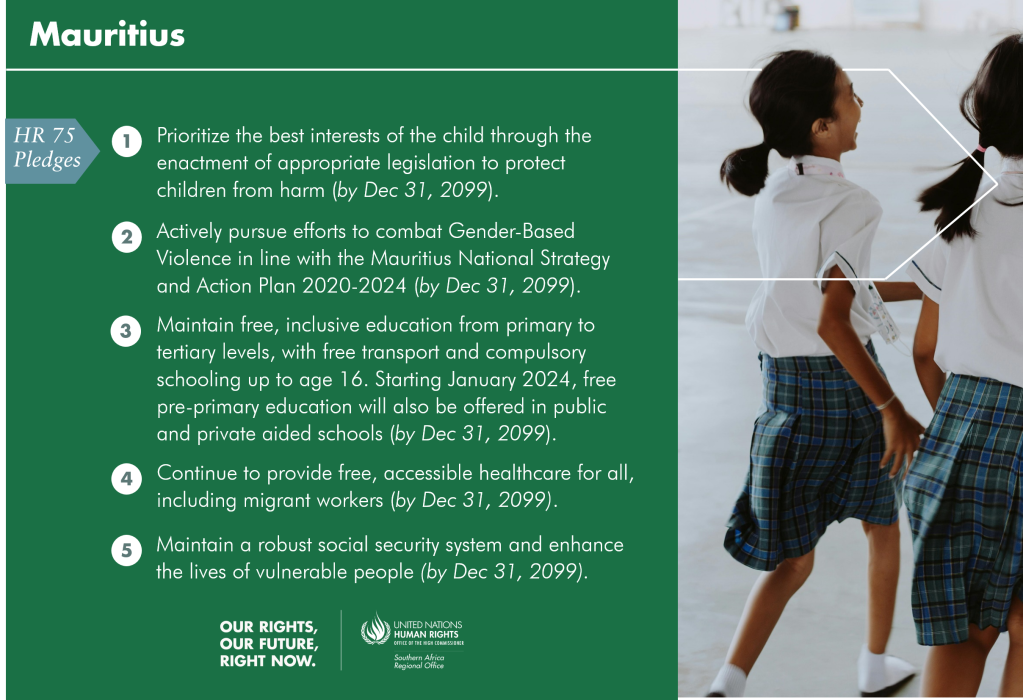
Story
14 August 2025
Prize-Giving Ceremony for Youth in Focus SDG Photo Competition
On 14 August 2025, to mark International Youth Day, the United Nations in Mauritius hosted the Youth in Focus – SDG Photography Prize-Giving Ceremony at the Institut Français de Maurice. The event brought together youth, government officials, UN representatives, diplomats, private sector partners, and creative professionals to honour the winners of a national photography competition and celebrate the power of youth-led action for sustainable development.Launched on UN Day 2024, the competition invited Mauritian youth aged 14–25 to visually interpret the Sustainable Development Goals (SDGs) through the themes of People, Prosperity, and Planet. Between October 2024 and April 2025, submissions were received, offering a unique lens on the challenges and hopes shaping communities across the island.A Platform for Youth EmpowermentWith less than five years remaining to achieve the 2030 Agenda, the urgency to mobilize all generations, especially young people, is greater than ever. The Youth in Focus initiative was designed to spotlight youth as strategic partners in development, using photography not only as an art form but as a tool for advocacy, storytelling, and change.From climate action and education to food security and plastic pollution, the entries reflected the lived realities of young Mauritians and their commitment to shaping a more inclusive and resilient future.The initiative also underscored the transformative power of art. Photography, as a medium, transcends age, background, and identity, serving as a connector that gives voice to the unheard and creates space for dialogue. The submissions revealed not only artistic talent, but also a deep awareness of the challenges and possibilities facing Mauritius and the world.Youth Voices at the CentreThe Prize-Giving Ceremony was a call to action. In her address, Ms. Lisa Singh, UN Resident Coordinator for Mauritius and Seychelles, emphasized:“Young people are not just the leaders of tomorrow, but the changemakers of today. Through photography as a medium, we celebrate their creativity, voice, and power to shape an inclusive and resilient future where every citizen lives life to the fullest. The UN stands with every young person: keep showing up, speaking out, and driving change.”In a thoughtful reflection on the competition’s core values, Mrs. Aneeta Ghoorah, Ombudsperson for Children, underscored how the initiative:“...resonates deeply with the mandate of the Office of the Ombudsperson for Children – to uphold and promote the rights and dignity of every child in Mauritius as enshrined in the UN Convention on the Rights of the Child. Central to their rights is the freedom for you youngsters to express your views, share your concerns and voice out your aspirations.”The evening also featured remarks from Mr. Ricaud Auckbur, Chief Technical Officer at the Ministry of Education and Human Resource, who reaffirmed the Government’s commitment to widening opportunities for young people. His presence underscored national efforts to nurture youth creativity, invest in their potential, and empower them to become genuine agents of change in shaping Mauritius’s future.A stirring performance by Mauritian artist Azor added a vibrant cultural dimension to the evening, blending traditional rhythms with contemporary storytelling. Her dynamic presence had the audience clapping, singing, and laughing along, setting a joyful and inclusive tone that carried through the entire celebration.Youth as Strategic StakeholdersMauritius is home to over 175,000 young people aged 15–24, representing 14 percent of the population. Globally, youth make up 1.2 billion people yet remain underrepresented in decision-making spaces. Only 2.5 percent of parliamentarians worldwide are under 30, and two-thirds of the world’s poor are children and youth.Beyond the competition, Mauritian youth continue to lead across sectors, in the National Youth Parliament and Diaspora Volunteering Project and regional platforms like the Indian Ocean Climate Conference for Youth. These initiatives reflect a growing movement of youth shaping policy, driving climate action, and promoting solidarity across island nations.Recognizing this, the UN in Mauritius continues to champion youth-led development through the UN Sustainable Development Cooperation Framework (UNSDCF). From inclusive education and climate resilience to innovation and entrepreneurship, youth are central to national progress.Building Momentum Through PartnershipThe success of Youth in Focus reflects the strength of collaboration. The UN in Mauritius acknowledges the vital contributions of the Government of Mauritius, SBM, ER Group, Constance Hotels & Resorts, and the professional photographers whose mentoring videos helped participants bring their visions to life. These partnerships demonstrate how creative engagement can unlock new pathways for progress, especially when youth are empowered to lead.Looking AheadAs the 2030 deadline approaches, initiatives like Youth in Focus are catalysts for change. By amplifying youth voices and showcasing their leadership, the UN in Mauritius reaffirms its commitment to building a future that is inclusive, resilient, and driven by those who have the most at stake.As Ms. Singh reminded participants, every submission told a story worth sharing. In a world where youth voices often go unheard, initiatives like Youth in Focus affirm that every young person has the power to dream boldly, act decisively, and shape a future full of opportunity.The Sustainable Development Goals are a shared promise that must be fulfilled with youth, and for youth.
1 of 5

Story
05 June 2025
Protecting Our Ocean Nations: Mauritius & Seychelles at the Frontline of Climate Action
As the United Nations Resident Coordinator for Mauritius and Seychelles, I see firsthand how these two island nations are navigating the dual challenges of climate vulnerability and sustainable development. On World Environment Day and World Oceans Day, I want to highlight why ocean conservation, plastic pollution, and climate financing are critical issues for our nations—and how the UN is working to address them.The Power & Promise of the Blue EconomyThe Blue Economy offers a path to sustainable growth, unlocking opportunities in marine tourism, fisheries, and renewable ocean energy. With their vast ocean territories, Mauritius and Seychelles are actively investing in ocean-based solutions to support livelihoods and protect marine ecosystems.Through the United Nations Sustainable Development Cooperation Framework (UNSDCF) in each country, the UN in Mauritius and Seychelles is working closely with governments and partners to strengthen ocean governance, marine biodiversity, and climate resilience. In Mauritius, we are supporting the development of a sustainable aquaculture strategy to balance economic growth with ocean conservation. In Seychelles, we are advancing marine spatial planning, ensuring that conservation efforts align with sustainable economic activities.However, these benefits are at risk from plastic pollution, one of the greatest threats to marine ecosystems. World Environment Day’s theme #BeatPlasticPollution is a crucial reminder that tackling ocean plastic is essential to sustaining the Blue Economy.#BeatPlasticPollution: A Call to ActionPlastic waste is choking our seas, harming marine life, fisheries, and coastal communities. Each year, millions of tons of plastic enter the ocean, breaking down into microplastics that disrupt ecosystems and impact human health.The UN in Mauritius and Seychelles is working to combat plastic pollution through:
✅ Strengthening policies to cut single-use plastics
✅ Promoting coastal clean-ups and community action
✅ Encouraging sustainable waste management and recyclingA healthy marine environment is vital to a thriving Blue Economy—protecting livelihoods, biodiversity, and resilience. Mauritius and Seychelles must remain at the forefront of ocean conservation, ensuring a sustainable future for generations to come.Addressing Climate Finance Challenges for SIDSWhile Mauritius and Seychelles are highly vulnerable to climate change, accessing concessional climate finance remains an obstacle. As middle- and high-income countries, we often struggle to secure funding for adaptation and resilience-building, despite the existential threats we face.The upcoming 2025 UN Ocean Conference provides a vital opportunity to advocate for financing mechanisms that recognize the unique vulnerabilities of SIDS. Mauritius and Seychelles will continue to push for global funding models that ensure island nations receive the resources needed to protect their ecosystems and communities.Charting a Resilient FutureAs the UN Resident Coordinator for Mauritius and Seychelles, I remain committed to supporting our nations in securing climate finance, strengthening ocean governance, and advancing sustainable development. On World Environment Day and World Oceans Day, let’s reaffirm our collective commitment to protecting our seas, driving sustainable ocean economies, and securing the resources necessary to safeguard our future.The ocean sustains us—let’s stand up and protect it. Read more: Beat Plastic Pollution CampaignUN Ocean Conference 2025
✅ Strengthening policies to cut single-use plastics
✅ Promoting coastal clean-ups and community action
✅ Encouraging sustainable waste management and recyclingA healthy marine environment is vital to a thriving Blue Economy—protecting livelihoods, biodiversity, and resilience. Mauritius and Seychelles must remain at the forefront of ocean conservation, ensuring a sustainable future for generations to come.Addressing Climate Finance Challenges for SIDSWhile Mauritius and Seychelles are highly vulnerable to climate change, accessing concessional climate finance remains an obstacle. As middle- and high-income countries, we often struggle to secure funding for adaptation and resilience-building, despite the existential threats we face.The upcoming 2025 UN Ocean Conference provides a vital opportunity to advocate for financing mechanisms that recognize the unique vulnerabilities of SIDS. Mauritius and Seychelles will continue to push for global funding models that ensure island nations receive the resources needed to protect their ecosystems and communities.Charting a Resilient FutureAs the UN Resident Coordinator for Mauritius and Seychelles, I remain committed to supporting our nations in securing climate finance, strengthening ocean governance, and advancing sustainable development. On World Environment Day and World Oceans Day, let’s reaffirm our collective commitment to protecting our seas, driving sustainable ocean economies, and securing the resources necessary to safeguard our future.The ocean sustains us—let’s stand up and protect it. Read more: Beat Plastic Pollution CampaignUN Ocean Conference 2025
1 of 5
Story
03 June 2025
UNESCO Led Workshop Empowers Media in Mauritius
Port Louis – Journalists and media professionals from Mauritius, Seychelles, and neighbouring Eastern African nations gathered in Port Louis from 13 to 15 May 2025 for a regional training workshop aimed at improving climate change reporting and addressing the growing threat of disinformation.With Mauritius and Seychelles positioned at the frontline of climate change impacts, the workshop placed a strong focus on enhancing media literacy within Small Island Developing States (SIDS) and Least Developed Countries (LDCs). It equipped journalists with the skills needed to combat misinformation, critically analyze environmental data, and amplify credible climate narratives.Hosted under the theme ‘Climate Change and Disinformation,’ the initiative was organized by UNESCO, in collaboration with Media Trust, Africa21, the Indian Ocean Commission, and the University of Mauritius. In addition to journalists from Mauritius, participants were welcomed from Comoros, Djibouti, Madagascar and Seychelles, reflecting the regional scope of the training.This training aligns with the Global Initiative for Information Integrity on Climate Change, launched in November 2024 by the United Nations, UNESCO, and the Brazilian government. The initiative strengthens communication campaigns to counter climate disinformation, ensuring that SIDS media professionals can effectively report on environmental challenges and solutions.The Growing Threat of Climate DisinformationClimate disinformation is worsening global environmental crises, creating barriers to public awareness and policy action. Mauritius, despite its low greenhouse gas emissions, remains highly vulnerable to climate-related risks, including coastal erosion, biodiversity loss, extreme weather events, and economic disruptions.UNESCO's Assistant Director-General for Communication and Information, Tawfik Jelassi, underscored the urgency of media integrity in climate reporting:“Disinformation is a global threat that now rivals climate change as one of the greatest risks facing humanity. Despite overwhelming evidence of climate change, misleading narratives continue to dominate public debate, amplified by social media and AI.”By equipping journalists in Mauritius with specialized training, the workshop reinforced the critical role of local media in safeguarding truth, educating communities, and holding policymakers accountable.Empowering Journalists Through Targeted TrainingThroughout the three-day workshop, 27 journalists participated in expert-led sessions, refining investigative reporting techniques and gaining tools to counter climate disinformation.Key objectives of the training included:Understanding mechanisms of misinformation related to climate changeIdentifying, avoiding, and reporting greenwashing practicesStrengthening citizen engagement through enhanced media literacyAnalysing cognitive biases and manipulations in environmental dataExamining the consequences of climate misinformation on fundamental rightsAdditionally, journalists from Mauritius, Seychelles, and other participating nations will produce at least 15 investigative reports and articles based on the insights gained—ensuring continued impact beyond the workshop.UNESCO’s Continued Commitment to Strengthening Climate JournalismUNESCO’s Regional Adviser for Communication and Information for Africa, Misako Ito, reiterated the organization's dedication to educating journalists on best practices for reporting environmental issues:“Integrity of information is a key global challenge in the face of social media and AI. (“UNESCO Regional Office for Eastern Africa | Nairobi - Facebook”) Raising awareness and strengthening journalism in climate reporting is vital to ensuring that accurate, science-based information reaches the public.”The workshop supports UNESCO’s operational strategy for Small Island Developing States (2023-2029), reinforcing media capacity and strengthening public trust in climate reporting across Mauritius, Seychelles, and the broader region.A Step Forward in the Global Fight Against Climate MisinformationFor Mauritius, the workshop represents a major step in enhancing journalistic integrity and resilience against misinformation, ensuring that local media can accurately report on environmental challenges and solutions.With the support of UNESCO, the UN, and its partners, journalists from SIDS nations are now better equipped to counter misinformation, amplify science-driven narratives, and engage communities in informed climate action, strengthening Mauritius, Seychelles, and the broader region’s commitment to sustainable development.
1 of 5
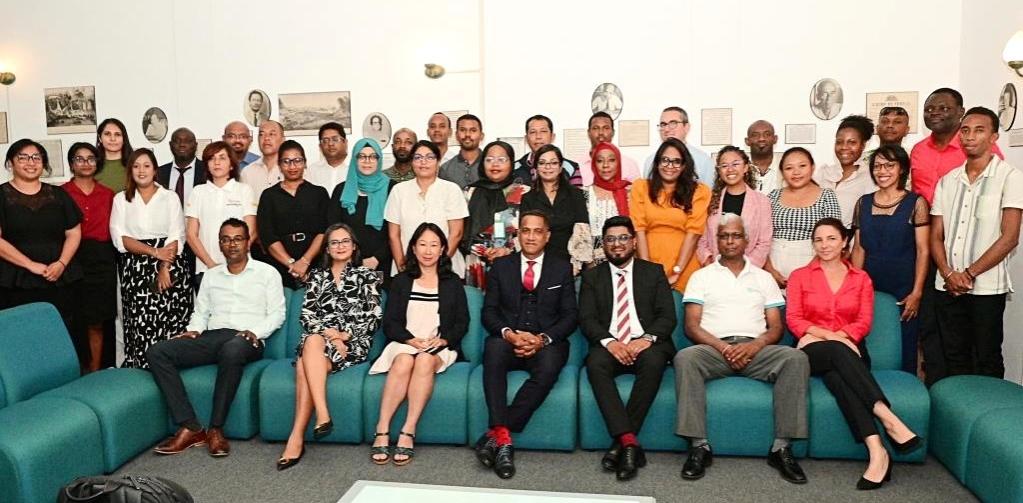
Story
02 June 2025
Mauritius Observes World No-Tobacco Day 2025
Mauritius commemorated World No-Tobacco Day on 02 June 2025, reinforcing its commitment to public health and sustainable development. In alignment with Sustainable Development Goal 3 (Good Health and Well-being), the initiative engaged nursing, medical, and university students in a dynamic awareness campaign aimed at exposing the tobacco industry’s evolving marketing tactics—especially those targeting young people.The event alerted youth to the dangers of new nicotine products and manipulative strategies designed to initiate addiction. Flavoured tobacco and nicotine products, crafted to mask the harshness of tobacco and enhance appeal, were highlighted as key concerns. The rising popularity of electronic nicotine delivery systems and other sophisticated, attractive devices further intensifies the risk of addiction amongst young people, with long-term consequences for their health and future.Government Leadership in Tobacco ControlHon. Anil Kumar Bachoo, Minister of Health and Wellness, reaffirmed his unwavering dedication to combating the tobacco epidemic in Mauritius. He emphasised the government's ongoing preventive measures and cessation programmes, aimed at discouraging tobacco use and supporting those seeking to quit.The Minister proudly referenced Mauritius’ global recognition in tobacco control, marked by his reception of the WHO Director-General’s Special Recognition Award from Dr. Tedros Adhanom Ghebreyesus at the 78th World Health Assembly in May 2025.“We shall leave no stone unturned to make Mauritius a country where no one dies from a preventable disease,” declared Minister Bachoo.United Nations and WHO AdvocacyDr. Anne Ancia, WHO Representative in Mauritius, delivered a powerful call to action:“Don’t be fooled. Resist and say ‘No’ to the insidious tactics of the tobacco industry trying to hook you for good. Say ‘Yes’ to health and to a thriving future—for yourself and for Mauritius.”Dr. Ancia congratulated Minister Bachoo on receiving the WHO award, describing it as a testament to decades of national commitment in the fight against tobacco. However, she warned against complacency:“There is no room for complacency. Much more needs to be done to save lives and protect future generations.”Academic Institutions Join the FightProfessor Sanjeev Sobhee, Vice-Chancellor of the University of Mauritius, underscored tobacco’s dual impact on youth health and financial stability, linking the discussion to Sustainable Development Goal 4 (Quality Education) and SDG 8 (Decent Work and Economic Growth):“Have the courage to say no to these deadly products. Think twice before engaging in the use of tobacco and nicotine.”Ahead of the official launch, an interactive youth forum provided students with insights into the ethical concerns surrounding tobacco marketing, tied to Sustainable Development Goal 12 (Responsible Consumption and Production). Health experts detailed the dangers of tobacco and nicotine use while students explored resistance strategies, shared perspectives on peer pressure, and learned about free tobacco cessation services available across Mauritius.A Nation Committed to a Healthier FutureMauritius stands at the forefront of global tobacco control, taking bold steps to protect its youth and safeguard future generations. By rejecting tobacco and nicotine products, the nation is actively shaping a healthier, more sustainable future, fully aligned with the United Nations Sustainable Development Goals.This article is an edited extract of the original article written by Vinoda Vythelingam published on the WHO Africa website.
1 of 5
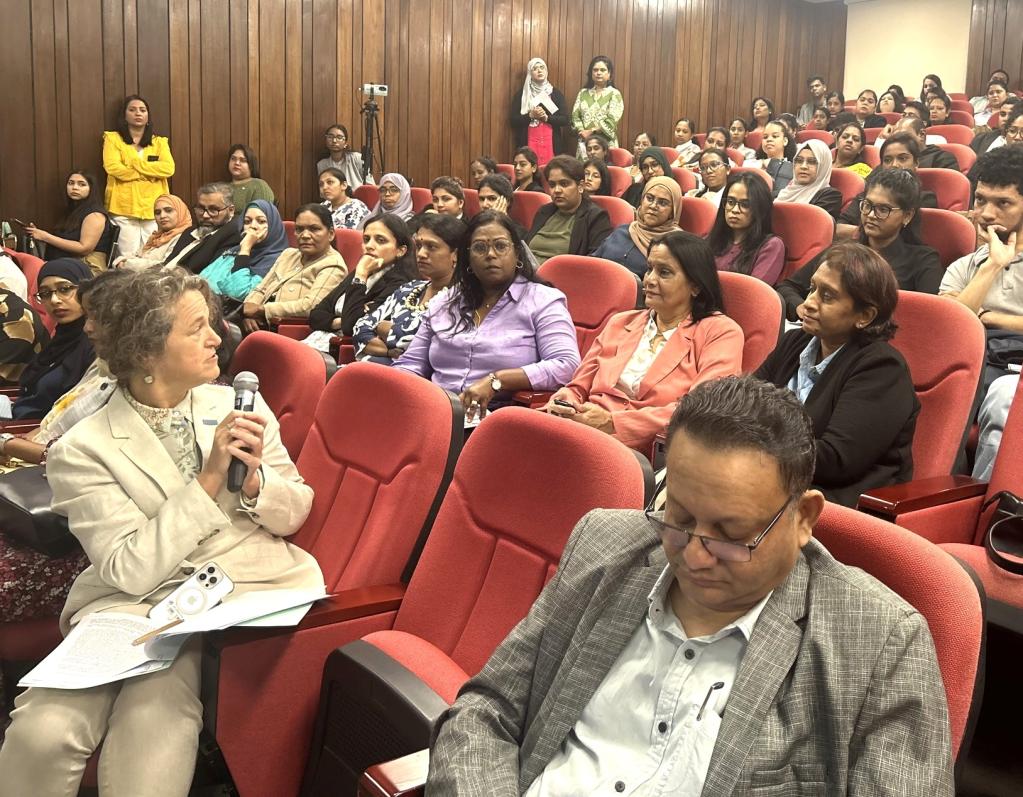
Story
02 June 2025
Building a Sustainable Future: Transforming Port Louis into a Smart, Green Maritime Hub
Mauritius is at a pivotal crossroads. As a Small Island Developing State (SIDS), it depends heavily on its ports—gateways of trade, connectivity, and economic growth. However, the challenges of climate change, energy security, and access to climate financing make sustainable transformation a pressing necessity.Last week, the United Nations Conference on Trade and Development (UNCTAD) and the Mauritius Ports Authority (MPA) gathered national stakeholders to present the Sustainable Smart Port (SSP) Assessment Report for Port Louis. More than a technical review, this presentation marked a bold step toward reshaping Mauritius’ maritime sector—aligning economic ambition with environmental responsibility.Ports are a driving force behind economic growth and connectivity. For Mauritius, their significance cannot be overstated. Contributing approximately 2% to national GDP, Port Louis plays an indispensable role in trade and logistics. But like ports worldwide, it faces mounting pressures—rising energy costs, fossil fuel dependency, and the urgency of reducing carbon emissions.The SSP Assessment Report provides a roadmap for sustainable modernization, identifying solar photovoltaic (PV) energy as the most viable renewable source for Port Louis. The report also explores electrification of port equipment and onshore power supply—steps that could drastically cut emissions and operational costs.Yet, the path to transformation is not without obstacles. Land constraints, funding gaps, and regulatory challenges loom large, making international and local partnerships critical for unlocking solutions. As a middle-income country, Mauritius faces difficulty in accessing climate financing, but through strategic engagement, it can mobilize investment for greener infrastructure.Beyond Ports: A Blueprint for a Sustainable Ocean EconomyThe transformation of Port Louis into a smart, green maritime hub extends far beyond trade and logistics—it is integral to Mauritius' vision for a resilient ocean economy. As a SIDS, Mauritius relies heavily on its marine resources, from fisheries and tourism to coastal biodiversity. A sustainable port is not just an isolated infrastructure upgrade; it serves as a cornerstone in the blue economy, supporting ocean-based industries while reducing environmental impact.By integrating renewable energy and electrification into port operations, Mauritius is setting a precedent for low-carbon maritime infrastructure. This shift benefits ocean health by curbing pollution and fostering cleaner coastal waters—critical for fisheries sustainability and marine tourism. Moreover, smart port solutions enable efficient logistics for sustainable seafood supply chains, reinforcing Mauritius’ commitment to balancing economic prosperity with environmental stewardship.The alignment of port modernization with climate adaptation strategies further strengthens Mauritius’ global leadership in sustainable maritime practices. Investing in green port development provides a model for how SIDS can harness innovation to drive broader ocean sustainability—securing livelihoods, protecting marine ecosystems, and enhancing resilience in the face of climate change.Beyond Port Louis: A Global Model for Smart PortsAt the SSP presentation, UN Resident Coordinator for Mauritius and Seychelles, Ms. Lisa Singh, underscored the necessity of efficient and sustainable port operations, especially in light of global trade disruptions. She emphasized that the maritime sector should be integrated into Mauritius’ next Nationally Determined Contribution (NDC 3.0)—ensuring ports and shipping are central to climate adaptation strategies.Ms. Frida Youssef, Chief of Transport at UNCTAD, echoed this sentiment, highlighting Mauritius’ SSP Assessment process as a potential model for other SIDS countries. The project’s success lies in active stakeholder collaboration and local expertise, demonstrating how smart, clean-energy-driven ports can become reality in similar economies.A Bridge to the FutureThe future of Port Louis is not just about trade; it is about resilience, sustainability, and innovation. Mauritius' Government Five-Year Plan (2025-2029) reflects the ambition to position the nation as a leading maritime and logistics hub in the Indian Ocean.By embracing clean energy, strengthening partnerships, and fostering forward-thinking policies, Mauritius can set a precedent for smart, sustainable port development—not just for itself, but for other SIDS nations seeking a greener future.
1 of 5
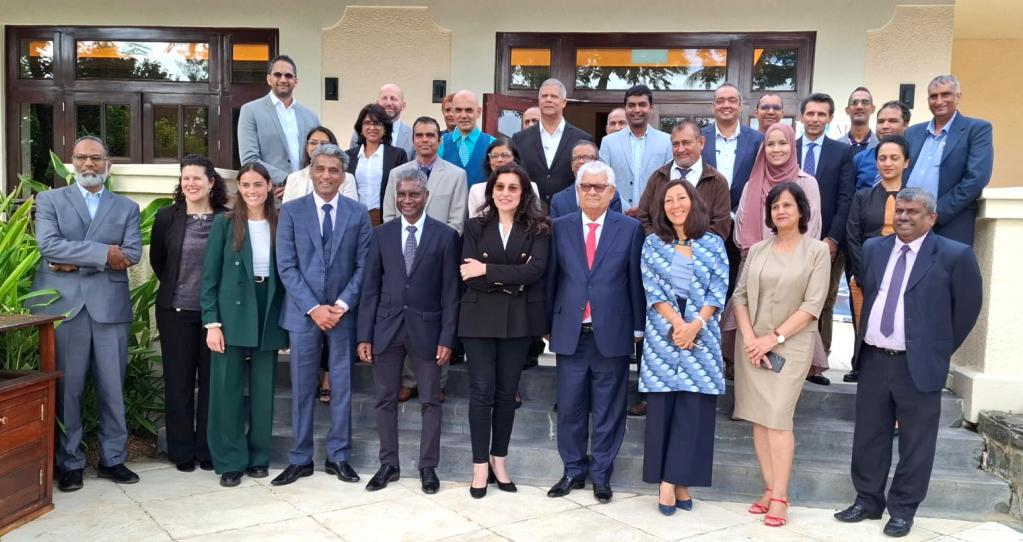
Story
22 May 2025
Historic Agreement on Chagos
On Thursday 22 May, the United Kingdom and the Republic of Mauritius signed a landmark agreement, marking a significant step toward the restoration of Mauritius' sovereignty over the Chagos Archipelago. This agreement marks a significant milestone in addressing a long-standing dispute and advancing the principles of justice, diplomacy, and historical reconciliation.The agreement recognizes the unlawful separation of the Chagos Islands before Mauritius gained independence in 1968 and acknowledges the forced displacement of the Chagossian people—an unresolved chapter in Mauritius' history.Under the terms of the agreement, the UK will lease Diego Garcia, the largest island in the archipelago, for 99 years, while maintaining its joint military operations with the United States. However, the deal signifies a crucial step in recognizing Mauritius' rightful sovereignty and strengthening diplomatic relations in the Indian Ocean region.UN Welcomes the AgreementThe United Nations, which has long supported international efforts to resolve this dispute, welcomed the development as a crucial demonstration of diplomacy in addressing historical grievances.UN Spokesperson Stéphane Dujarric described the agreement as “a significant step towards resolving a long-standing dispute in the Indian Ocean region,” highlighting its importance in advancing a peaceful and just resolution.UN Secretary-General António Guterres encouraged continued constructive dialogue, emphasizing the need to ensure that “the rights and aspirations of the Chagossian people are fully respected.”A Path ForwardFor the UN in Mauritius, this agreement reflects a commitment to historical justice, peaceful negotiation, and inclusive governance. The international community has long recognized the rights of Chagossians and their struggle for recognition. With this historic step, Mauritius moves closer to fully integrating Chagos into its national identity and development agenda.As diplomatic discussions continue, the UN remains committed to supporting Mauritius' sovereignty, advocating for human rights, and ensuring that all affected communities, especially the Chagossian people, receive the dignity and recognition they deserve.
1 of 5
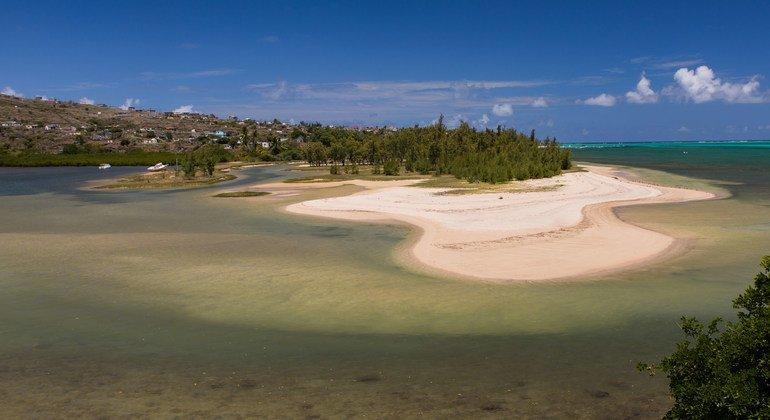
Press Release
01 July 2025
UN Country Team for Mauritius & Seychelles Annual Retreat 2025
01 July 2025 – A three-day United Nations Country Team (UNCT) retreat for Mauritius and Seychelles commenced today with the participation of 25 UN agencies, funds and programmes. It is organised under the theme “Repositioning UNCT for Accelerating Economic and Climate Resilience for All in Mauritius and Seychelles.” The gathering brings together government leaders, civil society organizations, regional organisations, international development banks and private sector partners to reflect, recalibrate and recommit to deepened collaboration for transformative results and progress on the 2030 Agenda for Sustainable Development.During the Opening Ceremony at the Savoy Hotel, Beau Vallon in Seychelles, Ms. Lisa Singh, UN Resident Coordinator for Mauritius and Seychelles, congratulated the clear vision of Mauritius and Seychelles toward an economic and climate-resilient future and emphasized:“The current global context, more than ever, calls for expanded partnership between the UN, government and all stakeholders to achieve transformative and lasting results that contribute to improve people's lives and build their resilience.”As Seychelles embarks on the second year of its National Development Strategy (2024–2028) and Mauritius initiates its new Government Programme (2025–2029), “A Bridge to the Future,” the timing of the Retreat is therefore significant in allowing the UN to strengthen strategic alignment with government priorities. Joining remotely, Hon. Mr. Dhananjay Ramful, Minister of Foreign Affairs, Regional Integration and International Trade, reaffirmed the value of multilateralism, stating:
“Mauritius will continue to champion the principles of multilateralism and international solidarity. We look forward to even deeper partnership with the UN System in delivering transformative change for our people, our region and our planet.”In his keynote address, Vice President and Minister for Finance, National Planning & Trade of Seychelles, Hon. Mr. Ahmed Afif, underscored the nation’s pioneering leadership and the evolving role of the UNCT in supporting national resilience:
“We pioneered the world's first blue bond to sustainably finance our marine sector. We implemented a debt for nature swap to reduce national debt while protecting our oceans. We are actively expanding renewable energy, sustainable tourism and digital public services. These are not isolated achievements, they are part of a national strategy to build long term resilience. To sustain and scale this progress, we need the UNCT to evolve with us—to become more responsive, more integrated and catalytic in its support.”Reinforcing this call for responsive and inclusive action, Hon. Mr. Flavien Joubert, Minister of Agriculture, Environment and Climate Change of Seychelles, highlighted: “No country can work in isolation as the threats that we face are collective and common to all, including climate change, global economic instability, pandemics, and cyber threats. We should commit ourselves to ensuring that no one – no children, women nor men, persons with disabilities or any at-risk groups in our communities, and abroad – is left behind.”The three-day event, which will cover issues of climate resilience, innovative finance, economic diversification, equitable growth, and regional integration, will facilitate the implementation of the Antigua and Barbuda Agenda for Small Island Developing States (ABAS).
“Mauritius will continue to champion the principles of multilateralism and international solidarity. We look forward to even deeper partnership with the UN System in delivering transformative change for our people, our region and our planet.”In his keynote address, Vice President and Minister for Finance, National Planning & Trade of Seychelles, Hon. Mr. Ahmed Afif, underscored the nation’s pioneering leadership and the evolving role of the UNCT in supporting national resilience:
“We pioneered the world's first blue bond to sustainably finance our marine sector. We implemented a debt for nature swap to reduce national debt while protecting our oceans. We are actively expanding renewable energy, sustainable tourism and digital public services. These are not isolated achievements, they are part of a national strategy to build long term resilience. To sustain and scale this progress, we need the UNCT to evolve with us—to become more responsive, more integrated and catalytic in its support.”Reinforcing this call for responsive and inclusive action, Hon. Mr. Flavien Joubert, Minister of Agriculture, Environment and Climate Change of Seychelles, highlighted: “No country can work in isolation as the threats that we face are collective and common to all, including climate change, global economic instability, pandemics, and cyber threats. We should commit ourselves to ensuring that no one – no children, women nor men, persons with disabilities or any at-risk groups in our communities, and abroad – is left behind.”The three-day event, which will cover issues of climate resilience, innovative finance, economic diversification, equitable growth, and regional integration, will facilitate the implementation of the Antigua and Barbuda Agenda for Small Island Developing States (ABAS).
1 of 5
Press Release
25 November 2024
Breaking the Silence - Exploring solutions to end Gender Based Violence
Balaclava, Mauritius: On the 25 of November 2024 the United Nations in Mauritius joined with the Australian High Commission, U.S. Embassy, European Union and French Embassy to hold a high-level panel discussion to kickstart the 16 Days of Activism against Gender-Based Violence (GBV). Taking place each year the 16 Days is global campaign bringing the spotlight to the most pervasive breaches of human rights - violence against women. The campaign commences on 25 November, the International Day for the Elimination of Violence against Women, and ends on 10 December, Human Rights Day.Globally an estimated 736 million women—almost one in three—have been subjected to physical and/or sexual intimate partner violence, non-partner sexual violence, or both at least once in their life that is 30% of women aged 15 and older. This figure does not include sexual harassment.[1] The women in Mauritius fare no better with the latest available figures showing that around 24% of women had experienced some form of GBV. and it should be noted that cases of violence and abuse within the confines of a home, cases against vulnerable people such as people with disability are often unreported.[2] This comes at a significant cost not just to the women concerned but to their families, their communities and to the country. With gender-based violence, - No One Wins; Everyone Loses.The UN Resident Coordinator, Ms Lisa Singh in her opening remarks reiterated the United Nations Commitment to Leave No One Behind in this fight against violence: “Let us remember that the 16 Days of Activism is not just a campaign; it is a call to action every single day of the year! Fighting this requires addressing deep-rooted systemic biases and therefore need for partnership with all stakeholders to change attitudes, improve access to opportunities, transform societies where equality, dignity, and respect prevail.”To set the scene for the panel discussion, the Australian High Commission with local non-governmental organization (NGO), Passerelle previewed a series of short videos under its Green Flag Project, a campaign to promote male allyship as an essential and often overlooked lever for impactful strategies to fight against GBV. The panel discussion entitled “Breaking the Silence - Exploring solutions to end Gender-Based Violence” provided the opportunity to start a conversation on strategies to address violence against women and girls in society and catalyze action. Recognizing that issues such as GBV impact all of society, therefore, require a whole of society approach the panelists comprised representatives from government, the diplomatic community, civil society and the private sector. Issues such as the actual effectiveness of the implementation of laws to support the victim; enhance service delivery to victims/survivors and monitor the enforcement of agreed protocols; societal attitudes which create an enabling environment for violence; and best practice to address gender-based violence were explored. High Commissioner, H.E. Ms. Kate Chamley outlined the alarming rates of gender-based violence globally, including in Australia, and discussed her country’s new strategy titled “Working for Women: A Strategy for Gender Equality” designed to drive action on women’s safety, sharing and valuing care, economic equality, women’s health, and women’s leadership, representation and decision making. U.S. Ambassador to Mauritius, H.E. Mr. Henry Jardine shared, “The United States is committed to continuous efforts to address the scourge of gender-based violence through educational programs, advocacy, and support for victims. Through the U.S. Department of State’s exchange programs, we send young Mauritian professionals to the United States every year. They gain valuable insight that enables them to impact their local communities. Over the last decade, the U.S. Embassy has hosted workshops to strengthen the capacity of police, prosecutors, and healthcare professionals to prosecute sex traffickers and care for victims of gender-based violence.” While Mr. Marios Vitos, Charge d’Affaires, a.i., Delegation of the EU to Mauritius underscored “In Mauritius the EU’s dedicated annual Gender Policy Dialogue with the Ministry of Gender Equality & Family Welfare, bears testimony of joint efforts to place gender equality and girls and women's empowerment at the top of our agenda.” The panel discussion sparked a lively Q&A session with the audience regarding the significant tangible and intangible costs of GBV to the victims/survivors, and communities and an exploration of opportunities for concrete action. The French Embassy representative highlighted that “…women's rights and gender equality is a first-rate priority of [France’s] foreign policy. France is in the process of finalizing a new strategy for feminist diplomacy. It uses all the instruments at its disposal to combat violence against women.” The United Nations in Mauritius will be collaborating with our partners on Day 15 of the 16 Days to raise awareness and engage youth around GBV issues with an academic University Quiz Challenge.***************************************************************************End Notes:Panel:Ms. A. Veerasawmy, Director Gender Links (Moderator)H.E. Ms. Kate Chamley, Australian High CommissionerH.E. Mr. Henry Jardine, U.S. Ambassador to MauritiusMr. Marios Vitos, Charge d’Affaires, a.i. of the Delegation of the European Union to MauritiusRepresentative from the Ministry of Gender Equality (tbc)Ms. Mokshda Pertaub, Director, M PowerMr. Kevin Ramkaloan, CEO, Business Mauritius.********************************************************************************What is GBV?Gender based violence involves any harmful threat or act directed at an individual or group based on actual or perceived biological sex, gender identity and/or expression, sexual orientation and/or lack of adherence to varying socially constructed norms around masculinity and femininity. Find out more about the UNite Campaign.
[1] UNITE! Invest to prevent violence against women and girls | UN Women – Headquarters[2] PMO - National Strategy TP FINAL WEB.pdf (govmu.org)
[1] UNITE! Invest to prevent violence against women and girls | UN Women – Headquarters[2] PMO - National Strategy TP FINAL WEB.pdf (govmu.org)
1 of 5
Press Release
03 April 2024
Delivering Stronger, UNited for People, Prosperity and Planet
03 April 2024: The United Nations Country Team (UNCT) for Mauritius and Seychelles is having their Annual Retreat entitled “Delivering Stronger, UNited for People, Prosperity and Planet” from the 3rd to the 5th of April of 2024 in Mauritius. Bringing together UN agencies and their partners – Government, private sector and civil society - to strengthen cooperation and identify opportunities for new collaboration. This Retreat 2024 is a chance for shared learning and for enhancing UNCT collective engagement to streamline and focus efforts towards achieving national development priorities and Agenda 2030. During the Opening Ceremony at Maritim Hotel, Balaclava Ms. Lisa Singh, UN Resident Coordinator for Mauritius and Seychelles highlighted this as a pivotal moment for the UNCT. It marks the first cycle of implementation of the new Cooperation Frameworks for sustainable development signed last year with the governments of each country. The Resident Coordinator highlighted:“Given the uniqueness of SIDS, many UN agencies have developed and are developing their SIDS strategy to better address their higher-than-average vulnerabilities to exogenous shocks. We also need to go beyond the small states narrative, for SIDS are more than small islands but large ocean states.”Hon. Sylvestre Radegonde Minister of Foreign Affairs and Tourism of Seychelles who joined online underlined:“Through strategic planning and evidence-based approaches…we have the opportunity to affect change for every Seychellois and Mauritian. The loss and damage fund, the multi-dimensional vulnerability index and the outcomes of the forthcoming SIDS4 Conference are tangible steps that will supercharge the breakthroughs needed by us to achieve the shared vision of Agenda 2030 of leaving no one behind. By analysing our challenges and successes we pave the way for the strategic implementation of this Cooperation Framework.”In his opening remarks the Hon. Maneesh Gobin Minister of Foreign Affairs, Regional Integration and International Trade of Mauritius and Government of Seychelles emphasized:“Small Island Nations like Mauritius have unique inherent vulnerabilities which are often overlooked when it comes to resource mobilisation for development. We need to go beyond the GDP per Capita criteria and rapidly devise a vulnerability index tailored specifically for SIDS which will enable small islands to mobilise the adequate resources needed to address the urgent development challenges and the existential threats posed by climate change. This should be a priority at the forthcoming SIDS4 Conference in Antigua and Barbuda.”The panel discussions which are being held during the Retreat with representation from across sectors focus conversation on key headlight issues for each pillar of the Cooperation Framework (People, Prosperity, and Planet). They will provide a platform for strategic dialogue to enhance collaboration across the UNCT to collectively deliver on the commitments made in the Cooperation Frameworks for each country.With less than ten years left to achieve the SDGs, challenges have been clearly identified, and interventions targeted to maximize effectiveness. To that end, the Retreat 2024 for Mauritius will be forward-looking, aiming to catalyse action that is strategic, succinct, adaptable, and results-oriented and which integrates Leave No One Behind (LNOB) as the core unifying principle. WHEN: Wednesday 03 April – Opening Ceremony @9:30 am & Friday 05 April – Closing Ceremony @12pmKEY SPEAKERS: UN Resident Coordinator for Mauritius & Seychelles Ms. Lisa Singh; Minister of Foreign Affairs, Regional Integration and International Trade, Hon. Maneesh Gobin Minister of Foreign Affairs, Regional Integration and International Trade of Mauritius and Hon. Sylvestre Radegonde Minister of Foreign Affairs and Tourism of Seychelles; Mr. Antonio Pedro, Deputy Executive Secretary, UNECA, Mr. Yacoub El-Hillo, Regional Director DCO Africa.
1 of 5
Press Release
19 January 2024
Mauritius’ human rights record to be examined by Universal Periodic Review
Mauritius is one of 14 States to be reviewed by the UPR Working Group during its upcoming 45th session from 22 January to 2 February 2024. The first, second and third UPR reviews of Mauritius took place in February 2009, October 2013, and November 2018, respectively.
The UPR Working Group is comprised of the 47 Member States of the Human Rights Council. However, each of the 193 UN Member States can participate in a country review.
The documents on which the reviews are based are: 1) national report - information provided by the State under review; 2) information contained in the reports of independent human rights experts and groups, known as the Special Procedures, human rights treaty bodies, and other UN entities; 3) information provided by other stakeholders including national human rights institutions, regional organizations, and civil society groups.
The three reports serving as the basis for the review of Mauritius on 24 January can be found here.
Location: Room 20, Palais des Nations, Geneva
Time and date: 9:00 – 12:30, Wednesday, 24 January 2024 (Geneva time, GMT +1 hour)
The UPR is a peer review of the human rights records of all 193 UN Member States. Since its first meeting was held in April 2008, all 193 UN Member States have been reviewed thrice. During the fourth UPR cycle, States are again expected to spell out steps they have taken to implement recommendations posed during their previous reviews which they committed to follow up on and highlight recent human rights developments in the country.
The delegation of Mauritius will be led by Mr. Maneesh Gobin, Minister of Foreign Affairs, Regional Integration and International Trade.
The three country representatives serving as rapporteurs (“troika”) for the review of Mauritius are Brazil, Burundi and the United States of America.
The webcast of the session will be at https://media.un.org/en/asset/k1p/k1p87orzs9
The list of speakers and all available statements to be delivered during the review of Mauritius will be posted on the UPR Extranet.
The UPR Working Group is scheduled to adopt the recommendations made to Mauritius on Friday, 26 January 2024 between 15:30 and 18:00. The State under review may wish to express its positions on recommendations posed to it during its review.
// ENDS //
For more information and media requests, please contact Pascal Sim, HRC Media Officer, at simp@un.org; Matthew Brown, HRC Public Information Officer, at matthew.brown@un.org and David Díaz Martín, HRC Public Information Officer at david.diazmartin@un.org.
To learn more about the Universal Periodic Review, visit www.ohchr.org/en/hr-bodies/upr/upr-main
1 of 5
Press Release
24 July 2023
Consultations open in Mauritius ahead of the first major international conference on Small Island Developing States since the pandemic
Port Louis, Mauritius – 24 July: Consultations for the first major international conference on Small Island Developing States (SIDS) since the global pandemic opens in Port Louis, Mauritius on July 24.
At the meeting, the small island nations of the Atlantic, Indian Ocean and South China Sea (AIS) will meet with international partners to review sustainable development progress and propose new partnerships and solutions in advance of the Fourth International Conference on Small Island Developing States in Antigua and Barbuda in 2024.
SIDS are in the crossfires of multiple crises: climate change, inequality and the economic and social repercussions of COVID-19, especially related to debt. COVID-19 hugely impacted all SIDS, especially the collapse in tourism that left large holes in coffers and severely set back efforts to invest in the Sustainable Development Goals, including climate action.
“Small Island Developing States are in the midst of a global crisis,” said Hon. Alan Ganoo, Minister of Land Transport and Light Rail, Minister of Foreign Affairs, Regional Integration and International Trade of Mauritius. He continued, “We must send a collective message reaffirming our determination to address the complex challenges that we face.”
The eight AIS countries—Cabo Verde, Comoros, Guinea-Bissau, Mauritius, Maldives, Seychelles, São Tomé e Príncipe, and Singapore—represent significant differences in exposure to climate change, natural hazards, and global markets. Since independence, some have developed strong economies, but their size and geographies leave them vulnerable to economic and ecological shocks.
Climate-related disasters such as severe storms, floods, and drought have almost doubled over the last 20 years, and they affect SIDS like no other countries. In a sudden-onset disaster, SIDS can lose everything overnight.
SIDS are responsible for only 0.2 per cent of global carbon emissions and yet suffer most from the impacts of climate change. The constant cycle of disaster and recovery leaves them weakened and unable to build resilience.
“The eight SIDS spread between the Atlantic and Indian Oceans and the South China Sea are as diverse as communities can be,” said Li Jinhua, United Nations Under-Secretary General for Economic and Social Affairs, and Secretary-General of the 2024 SIDS Conference. “The United Nations is committed to supporting these islands in their quest for a more resilient and sustainable future. They may be geographically remote, but their problems are not theirs to face alone.”
19 per cent of the coral reefs in the world are in SIDS’ waters. The combined Exclusive Economic Zones of Mauritius and Seychelles – the waters they control – are bigger than the size of India. The meeting will assert that a sustainable future for the planet relies on a renewed and strengthened partnership between all island nations and the international community.
The Mauritius meeting is the first regional review meeting on the path to the Fourth International Conference on Small Island Developing States, taking place in Antigua and Barbuda in 2024. Further regional meetings will be held this summer in Tonga for the Pacific region and in St. Vincent and the Grenadines for the Caribbean. These meetings will be followed by a final interregional gathering in Cabo Verde.
The Antigua and Barbuda conference next year will undertake a comprehensive review of the implementation of the SIDS Accelerated Modalities of Action (S.A.M.O.A.) Pathway, a major international development compact agreed in 2014.
The Mauritius meeting will adopt an outcome document with recommendations that will feed directly into preparations for the 2024 Conference. The meeting will bring together ministers and senior government officials from SIDS across the region alongside representatives of development partners and the UN system.
For more information
UN 2024 SIDS Conference: www.un.org/smallislands
Social media
Please follow any highlights and updates for the 2024 SIDS Conference using the hashtags #SIDS4 and #SmallIslands.
On Facebook: United Nations, Global GoalsUN, UN DESA, OHRLLS
On Twitter: @UN, @GlobalGoalsUN, @UNDESA, @SustDev, @UNOHRLLS Media contact Office of the High Representative for the Least Developed Countries, Landlocked Developing Countries and Small Island Developing States | Conor O’Loughlin | conor.oloughlin@un.org
On Twitter: @UN, @GlobalGoalsUN, @UNDESA, @SustDev, @UNOHRLLS Media contact Office of the High Representative for the Least Developed Countries, Landlocked Developing Countries and Small Island Developing States | Conor O’Loughlin | conor.oloughlin@un.org
1 of 5
Latest Resources
1 / 11
Resources
22 July 2025
1 / 11


